- (888) 381-9509
- [email protected]
- Book a Meeting
- student login
- Student Login
- Our Services
- Our Story How it started
- Our Team Meet Our Advisors & Tutors
- Our Services How we can help you
- Our Difference Learn why we stand out
- Success Stories & Testimonials Hear the stories
- For Parents Learn why you should trust us
- Organizational Partners Provide value to your students
- Institutional Partners Enhance your student offering
- In the News Read Our Stories
- Frequently Asked Questions Find answers
- MCAT Tutoring One-on-One Personalized Help
- MCAT Go An Audio Learning Experience
- MCAT Practice Exams Boost Your Score
- MCAT Prep App Videos, Flashcards & Q-Bank
- MCAT CARS Mastery Top-Rated CARS Video Course
- Pre-Med Coach 9th & 10th Grade Roadmap Planning
- College Admissions 11th & 12th Grade Pre-Med Consulting
- Direct Medical (BS/MD & BA/MD) Application Consulting
- Interview Preparation BS/MD Candidates
- Pre-Med Coach Pre-Application Development
- Application Advising Med School Admissions Support
- Personal Statement Editing Refine Your Narrative
- AMCAS Editing Application Editing
- Secondary Editing Secondary Application Editing
- Interview preparation Realistic Practice
- CASPer Preparation Simulation & Coaching
- Ontario Application Support OMSAS Application
- Residency Advising Complete Match Support
- Residency Interview Preparation
- ERAS Personal Statement Refine Your Story
- USMLE STEP 1 Maximize your scores
- USMLE STEP 2 Shine on your boards
- USMLE STEP 3 Conquer your final hurdle
- COMLEX LEVEL 1 and 2 Score higher
- Travel with Us Hands-On Clinical & Research
- Virtual Shadowing Explore Medical Specialties
- Pre-Med A to Z Admissions Video Course
- Research Roadmap Master Clinical Research
- MSC Score Calculate Your Chances
- Guidebooks Comprehensive Guides
- Med School Explorer Find Your School
- MCAT Review Videos, Questions, Notes

Personal Statement & Essay Editing
Whether you are crafting a compelling personal statement, editing the descriptions of your activities, developing a narrative for your secondaries, or portraying your value through update letters and letters of intent, MedSchoolCoach has the expertise to make your AMCAS, TMDSAS, or AACOMAS application stand out.
Our Physician Advisors will help you brainstorm content while our Writing Advisors will help you refine that content, paying special attention how you are showcasing your experiences, organizing your narrative, and developing your unique “voice.” After some careful editing and proofreading from your Writing Advisor and a final review by your Physician Advisor, you will have a compelling and authentic essay that will help you stand out.
- WHAT WE HELP WITH
- THE PERSONAL STATEMENT & ESSAY EDITING PROCESS
- meet your team
Customer Reviews </li-->
Talk to our Enrollment team
Craft the perfect medical school personal statement.
PHYSICIAN ADVISORS
WRITING ADVISORS
INCREDIBLE SUCCESS RATE
PERSONAL ATTENTION
Applications we can help with, college/post-bacc.
- Common Application
- Personal Statement
- “Why MD” Essay
- Supplemental Essays
- Extracurricular Essays (research, volunteer, internships)
MEDICAL SCHOOL
- AMCAS, TMDSAS, or AACOMAS Activities
- Secondary Essays
- Update Letters
- Letters of Interest/Letters of Intent
- Committee Letter Essays
- ERAS Application
- Letters of Intent
Invest in Your Medical School Future and Boost Your Odds of Getting Accepted!
Choose your advisor:
Steven Ruby MD Associate Director of Advising
Dr. Ruby is a distinguished vascular surgeon who has completed his general surgery residency at Columbia-Presbyterian Medical Center and a fellowship in Vascular Surgery at Harvard Medical School, and has held numerous leadership positions in various surgical societies. He is a founding member of Vascular Associates of Connecticut.
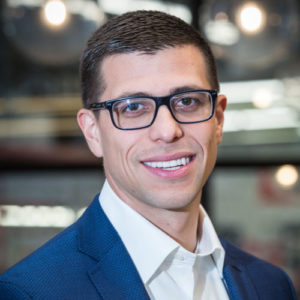
Joel Ramirez MD Associate Director of Advising
Dr. Ramirez is an integrated vascular surgery resident at UCSF who is passionate about teaching and tutoring for several board exams. He has served on the University of California, San Francisco School of Medicine admissions committee and is committed to being a leader in medical education.
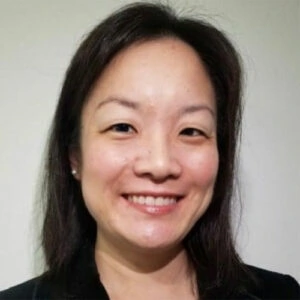
Susan Choo MD Associate Director of Advising
Dr. Choo completed her pre-med education at UC Berkeley and got her medical degree at UC San Diego. She is a board-certified pediatrician and has served on the admissions committee, reviewed applications, and worked with UC Irvine to teach and prepare students for the application process.
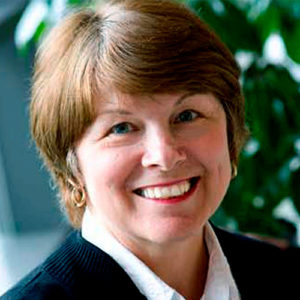
Wendy Gammon MA, MEd Director Writing Advisor
Wendy has worked as an admissions screener for the Internal Medicine Residency Program at Overlook Hospital, a pilot case developer with the NBME for the USMLE exam, and an assistant professor of medicine and director of the standardized patient program . She holds two master's degrees in English and education and has taught several AP courses.
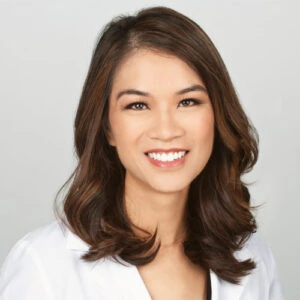
Kachiu Lee MD Director of Direct Med (BS/MD) Advising
Dr. Lee is a board-certified dermatologist and an assistant professor of dermatology at Brown University. Dr. Lee has a passion for medical education and also does research in developing new treatments for skin cancer. She specializes in BS/MD admissions, with more than 95% of her clients getting interviews for BS/MD programs each cycle.
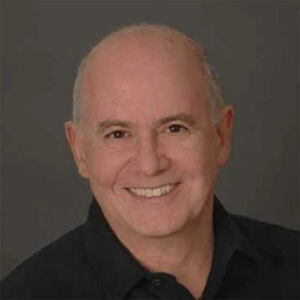
James Weintrub MD Associate Director of Advising
Dr. Weintrub is a board-certified plastic surgeon who trained at several institutions. He is in private practice and also serves as Chief of Plastic Surgery at the Providence VA Medical Center. He is a Clinical Assistant Professor at Brown University and has served on the selection committee for the plastic surgery residency program.
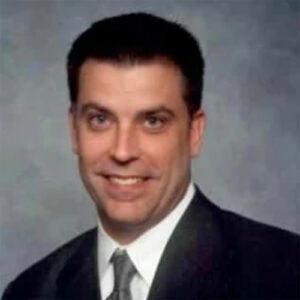
Ed Walsh MD Associate Director of Advising
Dr. Edward Walsh is an Emergency Medicine physician who graduated from the University of Virginia School of Medicine. He is especially interested in medical education and preparing students for the challenges of medical school and beyond, also serves faculty member at the James Madison University Physician Assistant program.

Ziggy Yoediono MD Associate Director of Advising
Dr. Yoediono received his MD from the University of Rochester, and did his training at the Harvard Longwood Psychiatry Residency Program. He has worked at Duke as a pre-major advisor and admissions interviewer. Dr. Yoediono co-authored papers published in The New England Journal of Medicine and Academic Medicine.
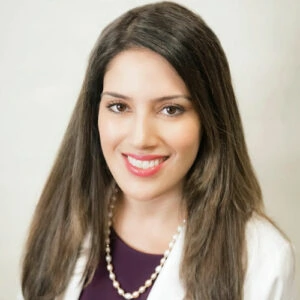
Newsha Lajevardi MD Associate Director of Advising
Dr. Newsha Lajevardi is a board-certified dermatologist who practices medical, pediatric and cosmetic dermatology, cutaneous surgery, and laser surgery. She has a nontraditional path to medical school and is highly involved in the application and interview process for prospective dermatology residents.
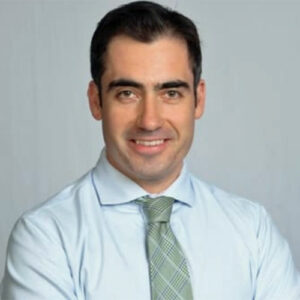
James Kelly MD Associate Director of Advising
Dr. Kelly attended Georgetown University for both undergraduate and medical school. He completed his Ophthalmology residency at North Shore/Long Island Jewish and is now in private practice, as well as helping Ophthalmologists prepare for their oral boards. He enjoys traveling, live music, and sports.
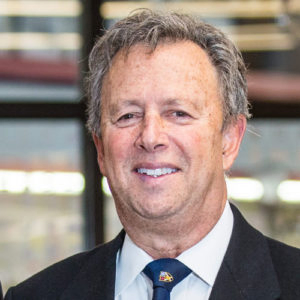
Ed Lipsit MD Associate Director of Advising
Dr. Lipsit is a Board Certified Radiologist with extensive experience in diagnostic ultrasound. Currently, he is an Associate Clinical Professor of Radiology at The George Washington University School of Medicine and Health Sciences and serves as an educational consultant. Dr. Lipsit has also been involved in admissions consulting for several years.
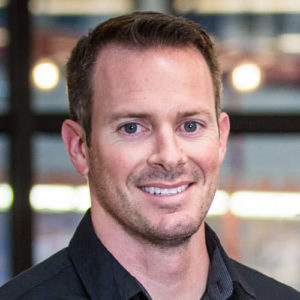
David Flick MD Associate Director of Advising
Dr. Flick graduated Magna Cum Laude from Loyola Marymount University and attended medical school at UC Irvine after receiving the Army health professions scholarship. He has served as a flight surgeon for the Army. While at the UC Irvine School of Medicine, he was an admissions committee member.
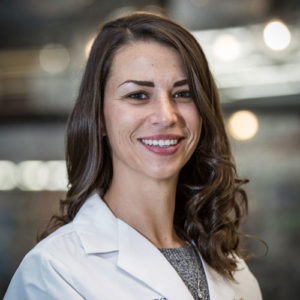
Renee Marinelli MD Director of Advising
Dr. Marinelli has practiced family medicine, served on the University of California Admissions Committee, and has helped hundreds of students get into medical school. She spearheads a team of physician advisors who guide MedSchoolCoach students.
Need more comprehensive help?
HOW OUR ESSAY EDITING PROCESS WORKS
Our advisors use our comprehensive intake form and spend time getting to know you on a personal level to find out what makes you unique.
Using your individual qualities, your Physician Advisor will work with you to brainstorm a cohesive narrative.
Develop and Organize
Once you have decided on content, your Writing Advisor will help you develop and enhance your story, turning your ideas into an organized and cohesive essay that puts your experiences in the spotlight.
Edit and Finalize
After a few drafts, your Writing Advisor will refine your prose and correct smaller writing errors that stand in the way of excellence. Your Physician Advisor will then approve the final product.
With the help of your team of advisors, you will craft a primary application that will get you secondary application invites, and lead to an acceptance to medical school.
Here is an example of an essay draft written by a student. Swipe to see the professional edits from a Physician Advisor.
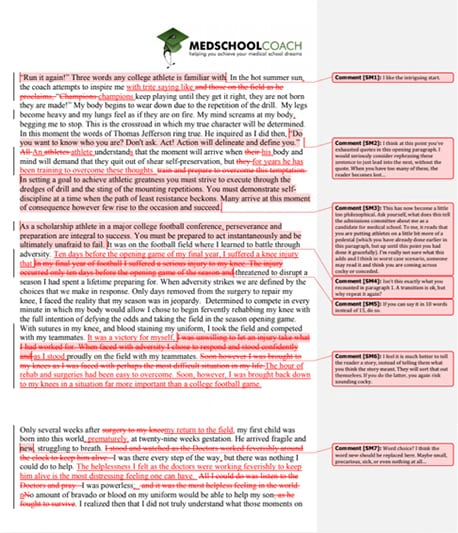
Meet a Physician Advisor
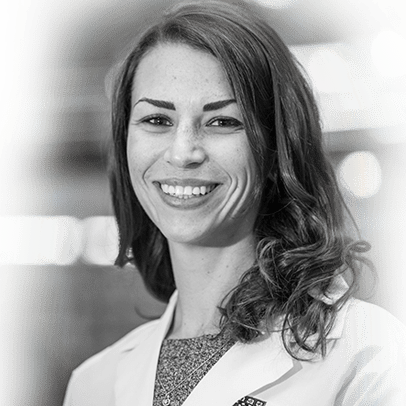
Dr. Marinelli was an admissions committee member at UC Irvine
MedSchoolCoach has the experience:
12k students helped
500k advising hours, meet some of our advisors.
Physicians with Admissions Committee Experience
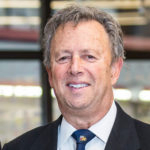
Lauren Mayer MD Master Advisor
Dr. Mayer is a compassionate and dedicated physician and teacher. She has a passion for mentoring students to help them achieve their goals. She is a board-certified Pediatrician.
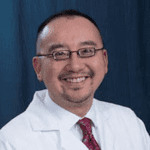
Henry Ng MD Advisor
A trailblazing physician and advocate, Dr. Ng has spearheaded LGBT health initiatives, founded Ohio's first LGBT-focused PRIDE Clinic, and achieved numerous accolades for his work in healthcare diversity and inclusion. Dr. Ng was an assistant dean and member of the Case Western Reserve University School of Medicine Admissions Committee.
Want to Meet More of the Team?
Frequently Asked Questions
With MedSchoolCoach, you get the advantage of having a Physician Advisor and Writing Advisor to help you develop your story. Our Physician Advisors have sat on admissions committees and have evaluated thousands of applications, so they understand exactly how to bring out the best in an applicant. Our Writing Advisors are professional writers and editors who will help you refine your concepts and create a compelling essay. This combination results in an extremely powerful team that will take your application essays to a new level.
Yes! All our essay editing packages come with brainstorming time with your Physician Advisor. Your Writing Advisor will also provide you with a worksheet to help you outline your narrative.
We use our advising portal, CHART, to organize your essays. When you upload your drafts to the platform, your Writing Advisor will review them in detail and then provide constructive feedback on how to improve them. As you get closer to a final draft, we will focus on things like word choice, sentence structure, and grammar.
Advisors provide feedback within 24-96 hours of submission. This allows enough time for in-depth edits.
More Questions
Application advising reviews.
Med school coach made my application process much smoother
Med school coach was extremely helpful especially developing my personal statement! They helped me put my dreams into words. It was also so wonderful to have a team of support when facing the daunting secondary essays. Highly recommend!!
MedSchoolCoach has been incredibly…
MedSchoolCoach has been incredibly helpful with my personal statement and secondary essays, helping me effectively communicate my experiences and qualities. They have also been a huge help with CASPer preparation. I am glad to have them assist me every step of the way with this process!
Great Consultants
I hired Medschoolcoach to help my daughter with her medical school application. They were excellent at helping her create a great personal statement, application and preparing her for her interviews. I highly recommend them, especially Dr. Frazier! I also liked that they were very honest with us from the beginning as to the strength of her application.
Need other help?
Great! We love working with students to help them get into medical school.
Strategic Planning
We provide advising and early planning to get you on the right track towards your medical school goals.
Essay Editing
Our Writing Advisors will help you draft and edit your personal statement.
Interview Preparation
Our Physician Advisors will prepare you for traditional and MMI interviews.
Want more comprehensive help?
Educational resources, recent blog posts.

Guide to MCAT Scores: Percentiles and What’s Average vs. Good
Table of Contents The MCAT (Medical College Admissions Test) is a standardized test that uses scaled scores for each of...
March 28, 2024

2024 Casper Test Dates & Schools That Require It
Table of Contents The Casper exam is a type of situational judgment test (SJT) designed for sampling personal characteristics and...
March 18, 2024

MD vs. DO: What’s The Difference + How To Choose
Table of Contents When you apply to medical school, you may apply to both DO and MD schools. DO vs. MD:...
March 11, 2024

The Pre-Med Journey: What it Takes to Get into Medical School
Thinking about applying to medical school? Discover what high school students need to know about obtaining a career in medicine.

Successfully Planning for the USMLE Step 1 and 2 CK
Get ready for the USMLE Step 1 and Step 2 with this free guide to study planning and resource utilization.

100 MCAT Study Tips
Taking the MCAT? These 100 tips and tricks will help you ace the MCAT.
Latest Reviews
Our students love working with us. Take a look at some of the latest reviews of our services.
Great experience with MedSchoolCoach!
My experience with MSC has been nothing but great so far. I started with a consultation and was not pressured into signing up right away. When I was ready, I purchased coaching, and my pre-med coach has been very helpful. I like having a physician advisor to boost my confidence about applying.
Super Helpful!!
In my BS/MD interview prep my coach thoroughly described the types of questions asked by the program, how I should go about answering them, and then gave me a mock interview. After I answered each of her interview questions, she gave me tons of feedback and told me what I should practice. Her feedback has greatly helped me prepare for my interview.
The Best Support I could Ask For
I couldn't have asked for a better college consulting service than MedSchoolCoach. Their team of advisors went above and beyond to ensure that I was well-prepared for the application process. They provided invaluable insights and helped me build a strong school list tailored to my goals. The extensive editing of my application materials helped me put my best foot forward. I'm grateful for their support and would highly recommend them to any aspiring pre-med student.
I was a 3rd time applicant to medical school…
I was a 3rd time applicant to medical school and I didn't realize how much of a difference having a great advisor could make. Medschoolcoach really made all the difference the 3rd time - was accepted to 3 MD schools, something I never thought would have been possible! I can't say enough great things about my advisors who constantly checked in and encouraged me. Would not hesitate for a second, just wish I had used them the first time!
Dr. Lee is amazing
Dr. Lee is extremely nice and down to earth. She guided my son very patiently for almost 2 years and helped him get into BS/MD program. My son has a full ride for under graduation. This entire process was daunting. But Dr. Lee and Rob Rivas helped us through the extremely stressful application and interview process. We couldn't have done this without their help and guidance. We feel blessed to have found Dr. Lee and MedSchool coach. Thanks for everything!
An invaluable resource for OMSAS applicants
The OMSAS editing service has proven to be an invaluable resource throughout my application journey. Their team of professionals provided unparalleled guidance and support. They meticulously reviewed my application, offering insightful feedback that significantly enhanced its quality.
Dr. Mandalia
Dr. Mandalia provided a plethora of good ideas to work into my responses that will help me strengthen my overall narrative and presentation. He noted my strengths and weaknesses and gave me many different ways to address my weaknesses. He is clearly incredibly knowledgable about what interview committees look for and was able to elaborate on these points in great detail.
The Best MCAT Tutoring Program
MedSchoolCoach has been such a great help in my MCAT studying! My tutor, Lejla, is the best! She has helped me create my own study schedule, always makes sure I understand what we review, and provides me with MCAT-style practice questions. I wish I would have found MedSchoolCoach a lot sooner. It would have made my life so much easier. I definitely would recommend this tutoring service to my friends and peers!
Non-traditional student, exciting application process.
I'm a non-traditional student, applying for a medical residency during covid. I encountered many obstacles that had me pretty demoralized at times. Dr. Blair Nelson kept my spirits up, and demystified the process, making it seem more manageable. I'm now in orientation for my residency, and I'm not sure I'd be here without his help. We still talk and I keep him updated on my progress. This service was worth every penny. Two thumbs waaay up.
Their help got me into medical school!
As a reapplicant the advice I received got me accepted! Strengthened my personal statement, secondary essays and provided much needed assistance with interview preparation. Awesome resource to have in your corner throughout the application process.
Exceeded all expectations, seriously the best organization I could have picked
In short, this is a first class organization. They don't just take your money and let you fend for yourself. They work with you to create a personalized plan for both how much tutoring you need as well as how to most effectively use your tutoring time. Every single minute was high-yield stuff with no wasted nonsense.
If you want to succeed and are looking for the right people to help you reach your goals, look no further. Seriously.
So helpful for Step 1!
I used MedSchool Coach to help me study for the USMLE Step 1 exam and was so thankful for their help! I highly recommend Abdul was a tutor! I was really nervous about the exam and really at a loss about how to the study before working with him. He provided a personalized approach and we systematically tackled all of my areas of weakness before the exam. After our sessions, I walked into test day feeling infinitely more confident than I would have been without his help!
Call us at (888) 381-9509
Call Us Now
Or, Schedule a Meeting Below

Happy April Fool’s Day from MedSchoolCoach!
While mastering sleep-learning is still a dream, mcat go helps you study for the mcat while you are awake. listen to mcat go for free (a $99 value) by entering your email below to receive an exclusive discount code. this ain’t no joke..

- Personal Statement
- International Students
- What is UCAT?
- What Is a Good UCAT Score?
Medicine Personal Statement
Your personal statement is the first impression you make on a medical school.

First impressions last. Ensure yours is perfect.
We know that writing your Medicine Personal Statement isn’t always easy. You list your top qualities, achievements, reflections, learning experiences and so much more. With huge competition for spaces at universities, your Personal Statement needs to make you stand out , and provide a summary of your best self.
What are the benefits of using Personal Statement Tutors?
Our team of doctors have read thousands of medicine personal statements as part of the medical school admissions process and knows exactly what is required to make your personal statement special and unique. We’ve got some amazing support options for you to help you craft the perfect Personal Statement .
Our tutors sit on medical school interview panels and have vast experience in medical education- this level of tutoring is not guaranteed elsewhere!
Our Personal Statement Coaching Services provide wonderful benefits for any aspiring medical student:
- Access to experienced British doctors, medical education specialists, and tutors who have coached and interviewed thousands of applicants.
- 24/7 access to your Tutor Doctor, through a dedicated WhatsApp group.
- Tailor-made feedback on your Personal Statement which is specific to you.
- Help even if you need to write your Personal Statement from scratch.
- Personalised 1-1 lessons, with all the attention on you.
- Relaxed tutoring environment- our coaching isn’t like a classroom, where there is only one teacher who has to cater to 30 students!
- You can use our tutoring service from the comfort of your home, without having to travel to a physical location.
- The option of unlimited hours of coaching, or between 1-20 hours.
- Quick turnaround for feedback, within as little as 24 hours, or 1 week.
- Guidance on how to make your Medicine application stand out.
- Improved confidence for the interview stage at your dream medical school.
- Saves you time and stress, allowing you to focus on your A-Levels, UCAT admissions test and other commitments.
How is my Personal Statement Marked?
When creating your personal statement submission, understanding how a personal statement will be marked is essential. This is something that The Future Medic team are experts in, so full guidance is always offered.
There is not one hard rule for how a personal statement is marked, as all medical and dental schools will have their criteria. Despite this, general principles tend to be covered within all marketing schemes, so we can confidently help prospective students craft excellently crafted personal statements .
Whilst the way marks are awarded differs, all follow the same level of non-bias and best practice criteria to ensure fair marking. This means that the various aspects of an application, including qualifications and personal experience, are all considered fairly, which offers the best experience for both universities and candidates.
General criteria can be broken down into the following categories:
Academic Suitability
Each university will have clarified what qualifications are needed for the course acceptance. The personal statement should go one step further and outline information about the candidate’s academic suitability, such as their learning style and examples of how they have applied themselves to learning.
Motivation for Wanting to Study Medical Practices
Thousands of students apply to each course every year, and many will have the same reasons for wanting to do so. The personal statement should include details on these motivations, which is why it is regarded as one of the marketing criteria. The applicant’s understanding and experience in associated roles will be considered.
Skill for Medical Study
Becoming qualified in the medical field is about much more than just learning the information and being able to put it into practice. The skills needed to work in medicine cover a range of personality traits the admissions officer will assess during the personal statement.
To assess this, experience in community and volunteer work, examples of emotional intelligence, leadership style, and personal motivations are all examined. It is the transferable skills, in most situations, that will be of the most interest, which is why concise explanations are recommended during the writing of a personal statement.
When creating your statement, our team will be able to share insights into the universities’ marketing criteria to give your application the best chance of success. By having a strong idea of how the personal statement will be marked, we can also ensure more continuity between your written and in-person stages of the application process.
How Do I Structure My Personal Statement?
Getting your personal statement spot on is essential for getting your message across effectively. With universities receiving thousands of applications, making sure your personal statement is concise and memorable is what we advise.
Structuring your personal statement is important to consider as you often have a small number of words available to share lots of information. Your personal statement should also get across who you are as a person so ensuring continuity in the writing style is vital.
By following the below structure, you can ensure that all the main pieces of information have been included to give your application the best chance of success.
1. Introduction Structure for Personal Statement
This section should be straight to the point and offer a way for the admissions officer to start building a connection with your case initially. Using an attention-grabbing opening statement and coming across confident is the best way to begin a personal statement.
Your tone of voice should be conversational yet professional and represent the communication style that will be apparent throughout the rest of your statement.
Content-wise, you should include a short introduction to who you are and why you are applying. All other details will be incorporated further on in the application. What to Include in the Main Body of a Personal Statement
2. What to Include in the Body of a Personal Statement
While you must include most of your information in this section, be sure to keep the writing style succinct. This will ensure the reader’s attention is maintained throughout your statement.
It would help if you wrote about your experience, qualifications, interests, and passions related to the course you are applying for. Careful attention should be given to the university course description and general statements, and an understanding of this should be applied to your content. Whilst assessors will want to learn about your unique information, they will still want to see that you have considered this is the course for you.
To do this, each point should feature information and evidence.
3. How to Conclude a Personal Statement
Like the introduction, this section should be to the point so as not to lose interest.
You do not want to repeat any evidential information but should reiterate, in a different way, any of the critical points that you want to stand out.
Do not add new information, as it will dilute your previous messaging. Round off your statement with a strong closing sentence, and you are good to go.
What do medical schools want in personal statements?
Every year, medical schools are bombarded with countless applications, but they can only shortlist a select few to interview. Your Medical personal statement will also form the basis for questions asked at the interview.
Medical schools want to see the reasons why you want to pursue a Medicine degree and what you wish to do with it.
They will look for the key skills and attributes required for the challenge of a medical degree, such as:
- Problem-solving
- Taking responsibility for your own actions
- Resilience and adaptability
- Excellent written and verbal communication
- Desire to alleviate others’ distress
- Managing risk and dealing with problems
Where can I get Personal Statement Tutors to help me with my Medicine application?
Here at The Future Medic , we provide a Personal Statement Coaching service for aspiring medical students.
Your Personal Statement will be reviewed by one of our admissions panel doctors, who have seen hundreds of Medicine personal statements over the years. We will read your Personal Statement and guide you on the structure, language, syntax and authenticity.
If you haven’t started writing yet, then that is no problem – our Personal Statement Tutors can also help you write your Personal Statement from scratch.
Choose from one of our Personal Statement coaching packages below.
Shine like a diamond
With this service, you can start with having written nothing, and by the end, have created the perfect personal statement for you.
What you get:
- Unlimited Hours of Coaching
- Unlimited Reviews
- The best service available
This is the most effective:
- Intensive Personal Statement Tutoring
We help you write your personal statement from scratch if needed. We help you structure it in the best possible way, focusing on each section in detail with unlimited redrafts and unlimited reviews until it is perfect.
We will also tutor you on aspects of the statement you will be asked about in interview.
Personal statement coaching
Book a one-to-one session with our expert tutors. Get specific coaching on the five domains of your PS as well as guidance on:
- Authenticity
We can also go through with you what questions you are likely to be asked at interview about your PS.
Last Minute Check-Up
This is a review of your personal statement by one of our admissions’ panel doctors. The constructive criticism and advice you will receive will focus on the 5 domains:
- Professionalism
- Thematic Tone
- First Impressions
- Most Importantly Any Red Flags
Feedback in 1 week
24 Hour Service
With this service, you can start with having written nothing, and by the end, have created the perfect medicine personal statement for you.
We help you write your medicine personal statement from scratch if needed. We help you structure it in the best possible way, focusing on each section in detail with unlimited redrafts and unlimited reviews until it is perfect.
Starting from
This is a review of your medicine personal statement by one of our admissions’ panel doctors. The constructive criticism and advice you will receive will focus on the 5 domains:
Related Stories

What Should Be the First Sentence of a Medical Personal Statement?
Writing a successful medical personal statement is your ticket to getting noticed at your chosen medical school, so getting it... read more

How Do You Make a Medical Personal Statement Stand Out?
So you’re thinking of applying to medical school, that’s great! But, there are some things you need to know first.... read more

Checklist For Your Medicine Personal Statement
Writing a successful medical personal statement as part of your UCAS university application that gets you noticed can be difficult,... read more

How Do You Know if Your Personal Statement Is Good?
A personal statement for medicine is the first impression you make to medical school, so it’s very important to get... read more

How Do You Introduce Yourself in a Personal Statement?
Your personal statement for medicine is your opportunity to talk about yourself, why you want to enrol on a particular... read more

How Can I Check My Personal Statement?
If you’re applying to university, you’ll know about the all-important personal statement. You may have started writing it or even... read more

Do Universities Check Personal Statements?
If you're considering applying for your place at university, hopefully, you've started brainstorming ideas for your personal statement. All university... read more

What Attracts You to a Career in Medicine?
When applying to study medicine, the most important thing you must consider is what attracts you to a medical career.... read more
Medical Personal Statement FAQs
Of course! Our personal statement, interview and UCAT coaching services are available for international students.
We understand that English may not be your first language, so we coach you in such a way that this does not become a hindrance at your interview.
Check out our webpage to see the support packages we offer for international students .
Ask a teacher to review your personal statement , as they can use their subject knowledge to advise you. They know you personally, so they can suggest specific areas for improvement.
However, be selective about the people you approach for feedback. If you share your personal statement with multiple family members and friends, they may give you contradictory pieces of advice.
If other Medicine applicants read your personal statement, they may be tempted to copy your ideas, so you will lose your original work.
No, your personal statement must be 100% your own work.
Never copy someone else’s personal statement or include inaccurate or misleading information in your application.
UCAS uses sophisticated technology to detect plagiarism and similarities across personal statements.
If you plagiarise on your personal statement and the UCAS software detects more than 30% similarity, you and your course provider will be notified by email, and your application could be rejected.
Make sure your Medical personal statement is 100% accurate and your own work. If UCAS suspects your application is fraudulent, they can request proof to verify the information you have provided.
Outline your motivation to study Medicine at your chosen university and explain how this will benefit your dream to become a doctor. What impact do you hope to make on the people around you?
Discuss any relevant work experience and what valuable skills you gained from them, such as problem-solving and conscientiousness.
Highlight your proudest achievements, which are unique to you, e.g. if you have climbed a mountain for charity or occupied a leadership position.
For more tips and advice, read our blog article on ‘what makes a successful Medicine personal statement’ here.
- Always proofread your personal statement a few times before submitting it.
- Avoid using clichés, e.g. mentioning your childhood dream of wanting to become a doctor. You need to justify your passion for Medicine now, as a young adult.
- Use a strong opening to hook the reader in.
- Do not mention hobbies and interests that are irrelevant to studying Medicine, such as watching the TV series Casualty .
Yes, at The Future Medic , we provide interview tutoring services to help Medicine applicants successfully enter the medical schools of their choice.
Our Interview Tuition Service package starts from £100. It offers personalised 1-1 lessons from a doctor or medical education specialist. The package is available between 2 hours to 20 hours.
Our Mock Interview Practice service is £150, and you can try a mock medical school interview, to fully prepare you to answer those tough questions.
At The Future Medic, we provide a very speedy service!
Feedback on your personal statement will be returned to you within as little as 24 hours, or 1 week.
Absolutely, it is worth having a personal statement reviewer look at your personal statement. Our tutors are fully qualified, practising British doctors within the NHS.
This level of tutoring is not guaranteed by any competitor. Each of our tutors has a breadth of experience to help you secure your place at your dream medical school.
These topics below should be avoided in a medical personal statement;
- Irrelevant hobbies
- Your academic grades and personal details
- Plagiarised material
US Oklahoma
Recently viewed courses
Recently viewed.
Find Your Dream School
This site uses various technologies, as described in our Privacy Policy, for personalization, measuring website use/performance, and targeted advertising, which may include storing and sharing information about your site visit with third parties. By continuing to use this website you consent to our Privacy Policy and Terms of Use .
COVID-19 Update: To help students through this crisis, The Princeton Review will continue our "Enroll with Confidence" refund policies. For full details, please click here.
Enter your email to unlock an extra $50 off any MCAT program!
By submitting my email address. i certify that i am 13 years of age or older, agree to recieve marketing email messages from the princeton review, and agree to terms of use., 15 tips for your medical school personal statement.
Don't underestimate the power of the medical school personal statement to make a strong, positive impression on an admissions committee. Combined with your interview performance, your personal statement can account for 60% (or more) of your total admissions score!
Medical schools want to enroll bright, empathetic, communicative people. Here's how to write a compelling med school personal statement that shows schools who you are and what you're capable of.

Personal Statement Topics
Your medical school personal statement is a component of your primary application submitted via, TMDSAS (for Texas applications), or AACOMAS (NB: If you are applying to medical school in Canada, confirm the application process with your school, as not all application components may be submitted through AMCAS).
These applications offer broad topics to consider, and many essay approaches are acceptable. For example, you could write about:
- an experience that challenged or changed your perspective about medicine
- a relationship with a mentor or another inspiring individual
- a challenging personal experience
- unique hardships, challenges, or obstacles that may have influenced your educational pursuits
- your motivation to seek a career in medicine
You'll write an additional essay (or two) when you submit secondary applications to individual schools. These essays require you to respond to a specific question. Admissions committees will review your entire application, so choose subject matter that complements your original essay .
Read More: Strategies for Secondary Applications
How to Write a Personal Statement for Medical School
Follow these personal statement tips to help the admissions committee better understand you as a candidate.
1. Write, re-write, let it sit, and write again!
Allow yourself 6 months of writing and revision to get your essay in submission-ready shape. This gives you the time to take your first pass, set your draft aside (for a minimum of 24 hours), review what you’ve written, and re-work your draft.
2. Stay focused.
Your personal statement should highlight interesting aspects of your journey—not tell your entire life story. Choose a theme, stick to it, and support it with specific examples.
3. Back off the cliches.
Loving science and wanting to help people might be your sincere passions, but they are also what everyone else is writing about. Instead, be personal and specific.
4. Find your unique angle.
What can you say about yourself that no one else can? Remember, everyone has trials, successes and failures. What's important and unique is how you reacted to those incidents. Bring your own voice and perspective to your personal statement to give it a truly memorable flavor.
5. Be interesting.
Start with a “catch” that will create intrigue before launching into the story of who you are. Make the admissions committee want to read on!
6. Show don't tell.
Instead of telling the admissions committee about your unique qualities (like compassion, empathy, and organization), show them through the stories you tell about yourself. Don’t just say it—actually prove it.
7. Embrace the 5-point essay format.
Here's a trusty format that you can make your own:
- 1st paragraph: These four or five sentences should "catch" the reader's attention.
- 3-4 body paragraphs: Use these paragraphs to reveal who you are. Ideally, one of these paragraphs will reflect clinical understanding and one will reflect service.
- Concluding paragraph: The strongest conclusion reflects the beginning of your essay, gives a brief summary of you are, and ends with a challenge for the future.
8. Good writing is simple writing.
Good medical students—and good doctors—use clear, direct language. Your essays should not be a struggle to comprehend.
9. Be thoughtful about transitions.
Be sure to vary your sentence structure. You don’t want your essay to be boring! Pay attention to how your paragraphs connect to each other.
Free MCAT Practice Tests & Events
Evaluate and improve your MCAT score.
10. Stick to the rules.
Watch your word count. That’s 5,300 characters (including spaces) for AMCAS applications, 5,000 characters for TMDSAS, and 4,500 characters for AACOMAS.
11. Stay on topic.
Rambling not only uses up your precious character limit, but it also causes confusion! Think about the three to five “sound bytes” you want admissions committee to know and remember you by.
12. Don't overdo it.
Beware of being too self-congratulatory or too self-deprecating.
13. Seek multiple opinions.
Before you hit “submit,” ask several people you trust for feedback on your personal statement. The more time you have spent writing your statement, the less likely you are to spot any errors. A professor or friend whose judgment and writing skills you trust is invaluable.
Read More: 12 Smart Tips for Your AMCAS Application
14. Double-check the details.
Always check for grammar, spelling, and punctuation errors. This goes for the rest of your application (like your activities list), too. A common oversight is referencing the wrong school in your statement! Give yourself (and your proofreaders) the time this task truly requires.
15. Consult the experts about your personal statement strategy.
Our med school admissions counselors can diagnose the “health” of your overall application, including your personal statement. Get expert help and guidance to write an effective personal statement that showcases not only your accomplishments, but your passion and your journey.
Want to get an edge over the crowd?
Our admissions experts know what it takes it get into med school. Get the customized strategy and guidance you need to help achieve your goals.
Med School Admission Counseling

Explore Graduate Programs for You
Explore our featured graduate schools & programs to find those that both match your interests and are looking for students like you.

Best Law Schools
Check out our complete list of 168 law schools, based on surveys of school administrators and over 17,000 students.

Search for Medical Schools
Visit our Med School Hub to explore med schools with our ‘Find Your Med School’ filtered search or visit our Med School Advice pages for info about good MCAT scores or interview question prep.

Find MBA Programs Matched to Your Interests
Explore our featured business schools to find those that are looking for students like you.
MCAT Prep Courses
510+ course, ultimate course, summer immersion, more mcat articles, free mcat practice test & events, 1-800-2review, free mcat biology course take our biology class at no cost, what would you score on the mcat today.
Thank you! Look for the MCAT Review Guide in your inbox.
I already know my score.
Enrollment Advisor
1-800-2REVIEW (800-273-8439) ext. 1
1-877-LEARN-30
Mon-Fri 9AM-10PM ET
Sat-Sun 9AM-8PM ET
Student Support
1-800-2REVIEW (800-273-8439) ext. 2
Mon-Fri 9AM-9PM ET
Sat-Sun 8:30AM-5PM ET
Partnerships
- Teach or Tutor for Us
College Readiness
International
Advertising
Affiliate/Other
- Enrollment Terms & Conditions
- Accessibility
- Cigna Medical Transparency in Coverage
Register Book
Local Offices: Mon-Fri 9AM-6PM
- SAT Subject Tests
Academic Subjects
- Social Studies
Find the Right College
- College Rankings
- College Advice
- Applying to College
- Financial Aid
School & District Partnerships
- Professional Development
- Advice Articles
- Private Tutoring
- Mobile Apps
- Local Offices
- International Offices
- Work for Us
- Affiliate Program
- Partner with Us
- Advertise with Us
- International Partnerships
- Our Guarantees
- Accessibility – Canada
Privacy Policy | CA Privacy Notice | Do Not Sell or Share My Personal Information | Your Opt-Out Rights | Terms of Use | Site Map
©2024 TPR Education IP Holdings, LLC. All Rights Reserved. The Princeton Review is not affiliated with Princeton University
TPR Education, LLC (doing business as “The Princeton Review”) is controlled by Primavera Holdings Limited, a firm owned by Chinese nationals with a principal place of business in Hong Kong, China.

Great Medical School Personal Statement Examples (2024-2025) Insider’s Guide
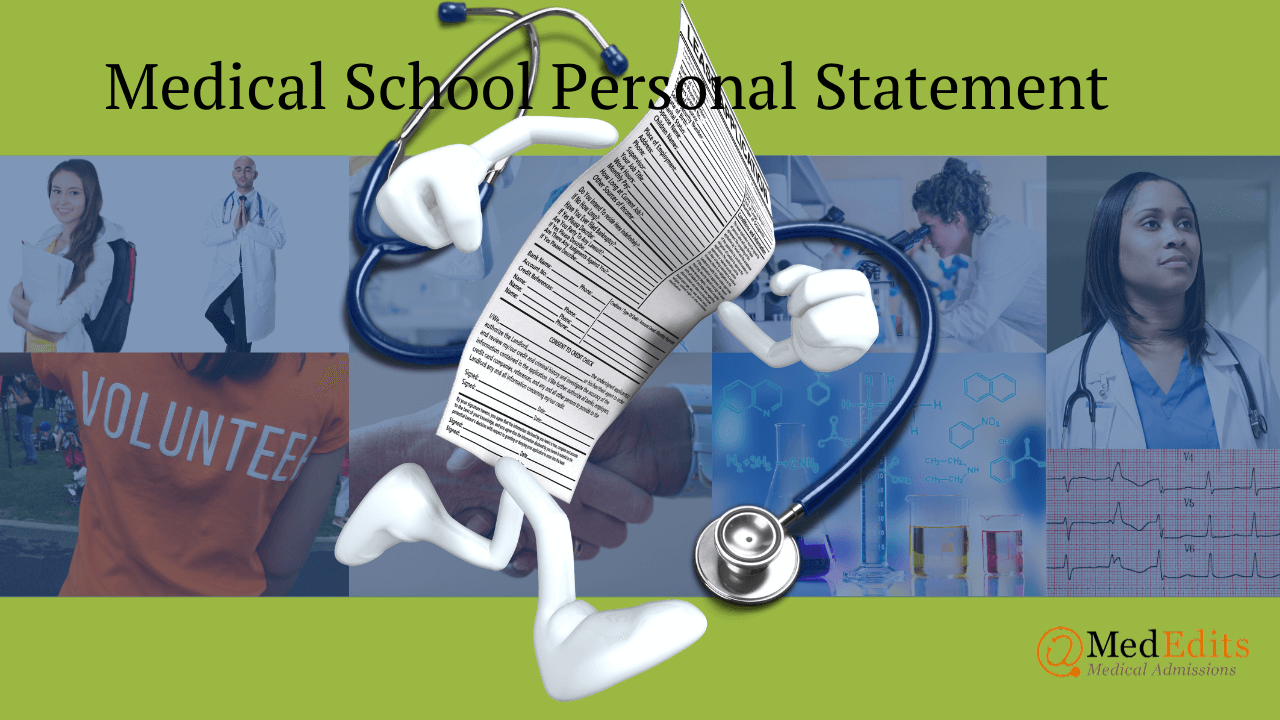
A physician and former medical school admissions officer teaches you how to write your medical school personal statement, step by step. Read several full-length medical school personal statement examples for inspiration.
In this article, a former medical school admissions officer explains exactly how to write a stand-out medical school personal statement!
Our goal is to empower you to write a medical school personal statement that reflects your individuality, truest aspirations and genuine motivations.
This guide also includes:
- Real life medical school personal statement examples
- Medical school personal statement inventory template and outline exercise
- AMCAS, TMDSAS, and AACOMAS personal statement prompts
- Advanced strategies to ensure you address everything admissions committees want to know
- The secret to writing a great medical school personal statement
So, if you want your medical school personal statement to earn more more medical school interviews, you will love this informative guide.
Let’s dive right in.
Table of Contents
Medical School Personal Statement Fundamentals
If you are getting ready to write your medical school personal statement for the 2024-2025 application year, you may already know that almost 60% of medical school applicants are not accepted every year . You have most likely also completed all of your medical school requirements and have scoured the internet for worthy medical school personal statement examples and guidance.
You know the medical school personal statement offers a crucial opportunity to show medical schools who you are beyond your GPA and MCAT score .
It provides an opportunity to express who you are as an individual, the major influences and background that have shaped your interests and values, what inspired you to pursue medicine, and what kind of a physician you envision yourself becoming.
However, with so much information online, you are not sure who to trust. We are happy you have found us!
Because the vast majority of people offering guidance are not former admissions officers or doctors , you must be careful when searching online.
We are real medical school admissions insiders and know what goes on behind closed doors and how to ensure your medical school personal statement has broad appeal while highlighting your most crucial accomplishments, perspectives, and insights.
With tight limits on space, it can be tough trying to decide what to include in your medical school personal statement to make sure you stand out. You must think strategically about how you want to present your personal “big picture” while showing you possess the preprofessional competencies med schools are seeking.
When a medical school admissions reviewer finishes reading your medical school personal statement, ask yourself:
- What are the most important things you want that person to remember about you?
- Does your medical school personal statement sum up your personality, interests, and talents?
- Does your medical school personal statement sound as if it’s written from the heart?
It’s pretty obvious to most admissions reviewers when applicants are trying too hard to impress them. Being authentic and upfront about who you are is the best way to be a memorable applicant.
The Biggest Medical School Personal Statement Mistakes
The most common medical school personal statement mistake we see students make is that they write about:
- What they have accomplished
- How they have accomplished it
By including details on what you have accomplished and how, you will make yourself sound like every other medical school applicant.
Most medical school applicants are involved in similar activities: research, clinical work, service, and social justice work.
To stand out, you must write from the heart making it clear you haven’t marched through your premedical years and checking boxes.
We also strongly discourage applicants from using ChatGPT or any AI bot to write their medical school personal statement. Writing in your own voice is essential and using anything automated will undermine success.
The Medical School Personal Statement Secret
MedEdits students stand out in the medical school personal statement because in their personal statements they address:
WHY they have accomplished what they have.
In other words, they write in more detail about their passions, interests, and what is genuinely important to them.
It sounds simple, we know, but by writing in a natural way, really zeroing in on WHY YOU DO WHAT YOU DO, you will appeal to a wide variety of people in a humanistic way.
MedEdits students have done extremely well in the most recent medical school admissions cycle. Many of these applicants have below average “stats” for the medical schools from which they are receiving interviews and acceptances.
Why? How is that possible? They all have a few things in common:
- They write a narrative that is authentic and distinctive to them.
- They write a medical school personal statement with broad appeal (many different types of people will be evaluating your application; most are not physicians).
- They don’t try too hard to impress; instead they write about the most impactful experiences they have had on their path to medical school.
- They demonstrate they are humble, intellectual, compassionate, and committed to a career in medicine all at the same time.
Keep reading for a step by step approach to write your medical school personal statement.
“After sitting on a medical school admissions committee for many years, I can tell you, think strategically about how you want to present your personal “big picture.” We want to know who you are as a human being.”
As physicians, former medical school faculty, and medical school admissions committee members, this article will offer a step by step guide to simplify the medical school personal statement brainstorming and writing process.
By following the proven strategies outlined in this article, you will be and to write a personal statement that will earn you more medical school interviews . This proven approach has helped hundreds of medical school applicants get in to medical school the first time they apply!
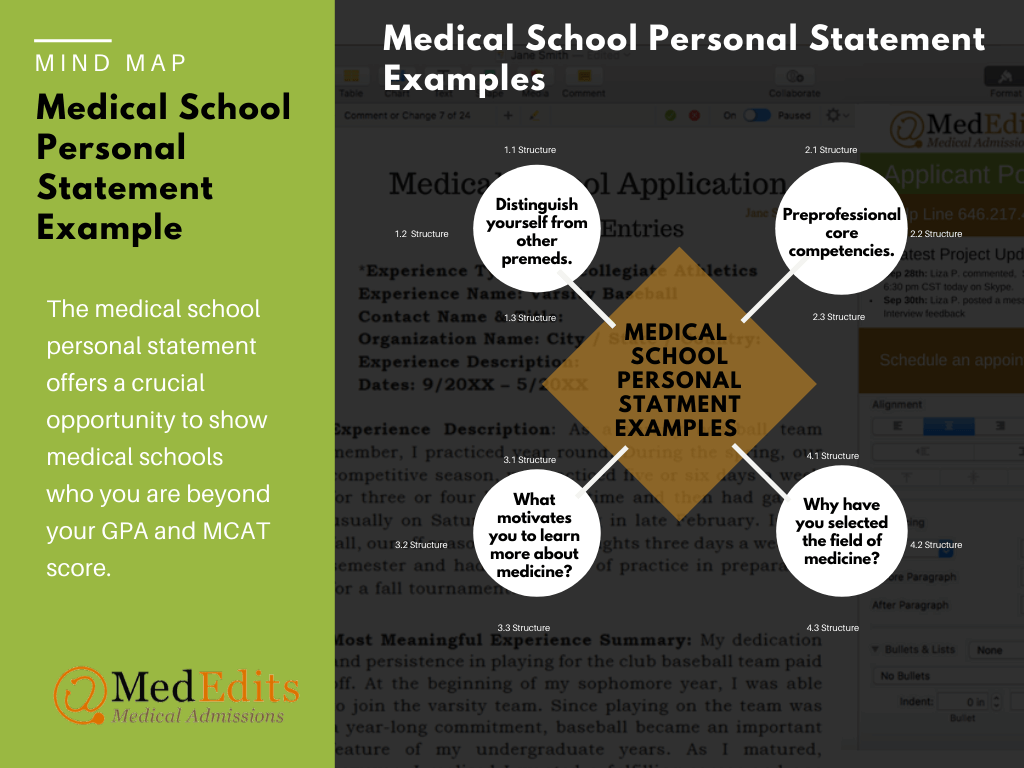
Learn the 2024-2025 Medical School Personal Statement Prompts ( AMCAS , TMDSAS , AACOMAS )
The personal statement is the major essay portion of your primary application process. In it, you should describe yourself and your background, as well as any important early exposures to medicine, how and why medicine first piqued your interest, what you have done as a pre med, your personal experiences, and how you became increasingly fascinated with it. It’s also key to explain why medicine is the right career for you, in terms of both personal and intellectual fulfillment, and to show your commitment has continued to deepen as you learned more about the field.
The personal statement also offers you the opportunity to express who you are outside of medicine. What are your other interests? Where did you grow up? What did you enjoy about college? Figuring out what aspects of your background to highlight is important since this is one of your only chances to express to the med school admissions committee before your interview what is important to you and why.
However, it is important to consider the actual personal statement prompt for each system through which you will apply, AMCAS, AACOMAS, and TMDSAS, since each is slightly different.
Getting into a medical school has never been more competitive. Let the experts at MedEdits help you with your medical school application materials. We’ve worked with more than 5,000 students and 94% have been admitted to medical school.
Need help with your Personal Statement?
Schedule a free 15 Minute Consultation with a MedEdits expert.
2024 AMCAS Personal Statement Prompt
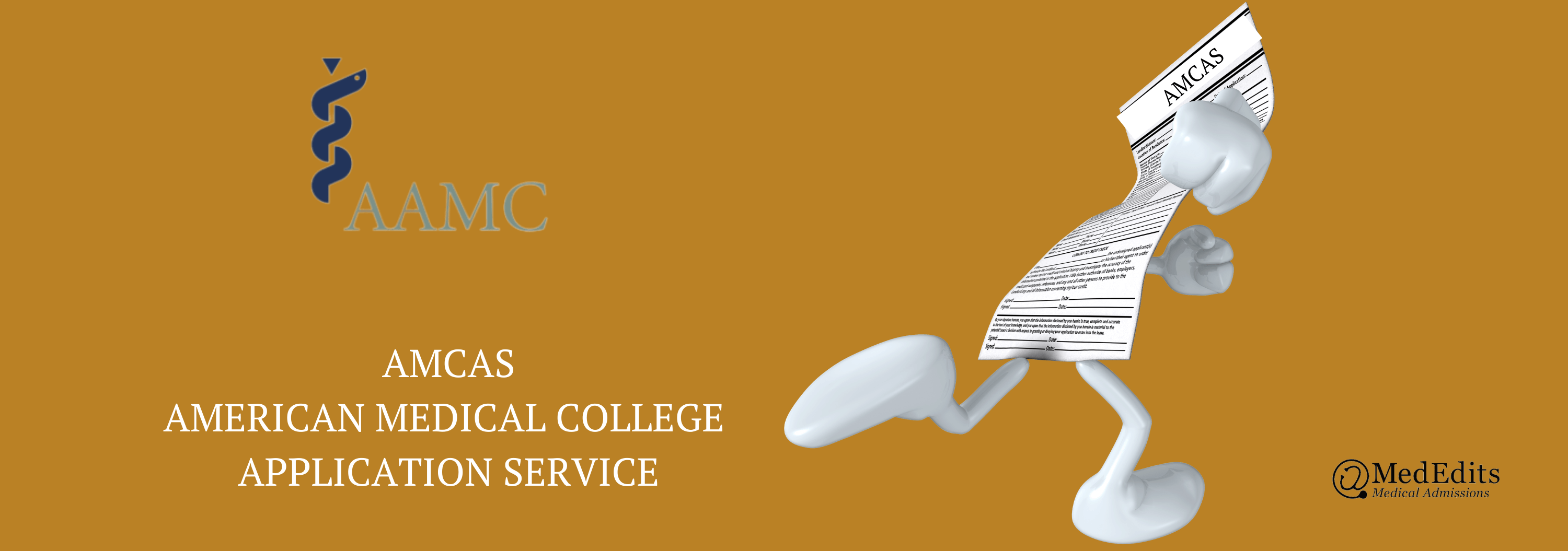
The AMCAS personal statement instructions are as follows:
Use the Personal Comments Essay as an opportunity to distinguish yourself from other applicants. Consider and write your Personal Comments Essay carefully; many admissions committees place significant weight on the essay. Here are some questions that you may want to consider while writing the essay:
- Why have you selected the field of medicine?
- What motivates you to learn more about medicine?
- What do you want medical schools to know about you that hasn’t been disclosed in other sections of the application?
In addition, you may wish to include information such as:
- Unique hardships, challenges, or obstacles that may have influenced your educational pursuits
- Comments on significant fluctuations in your academic record that are not explained elsewhere in your application
As you can see, these prompts are not vague; there are fundamental questions that admissions committees want you to answer when writing your personal statement. While the content of your statement should be focused on medicine, answering the open ended third question is a bit trickier.
The AMCAS personal statement length is 5,300 characters with spaces maximum.
2024 TMDSAS Personal Statement Prompt
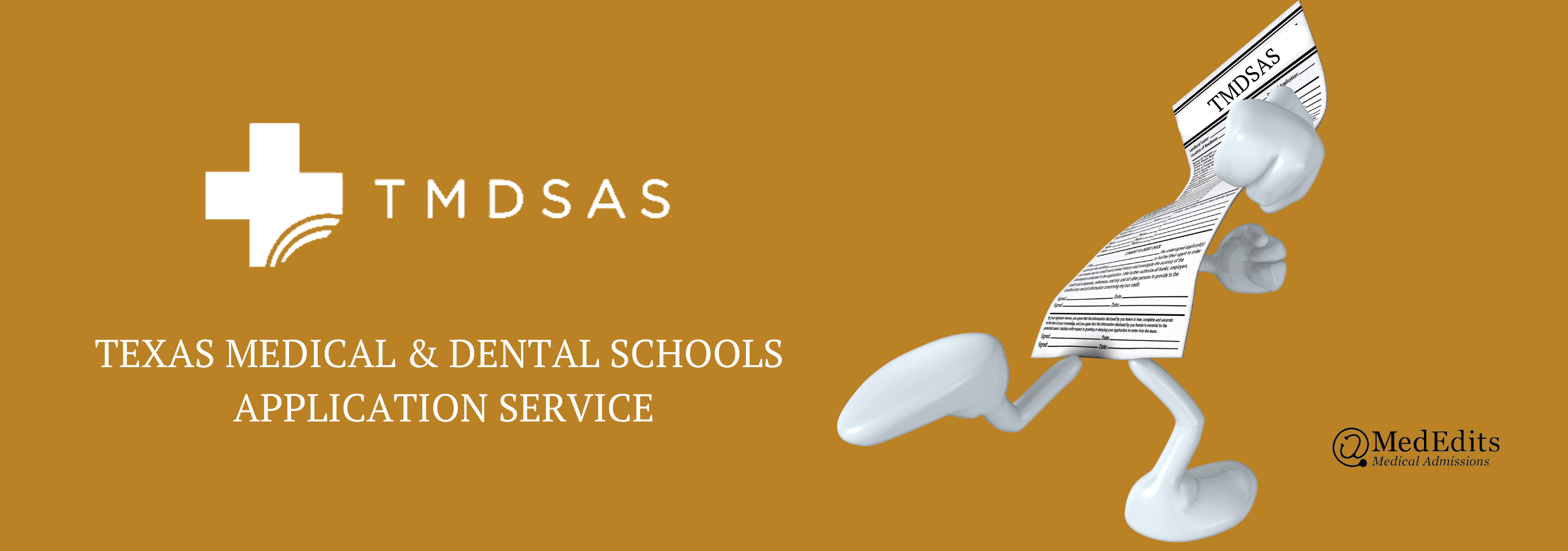
The TMDSAS personal statement is one of the most important pieces of your medical school application.
The TMDSAS personal statement prompt is as follows:
Explain your motivation to seek a career in medicine. Be sure to include the value of your experiences that prepare you to be a physician.
This TMDSAS prompt is very similar to the AMCAS personal statement prompt. The TMDSAS personal statement length is 5,000 characters with spaces whereas the AMCAS personal statement length is 5,300 characters with spaces. Most students use the same essay (with very minor modifications, if necessary) for both application systems.
You’ve been working hard on your med school application, reading medical school personal statement examples, editing, revising, editing and revising. Make sure you know where you’re sending your personal statement and application. Watch this important medical school admissions statistics video.
2024 AACOMAS Personal Statement Prompt
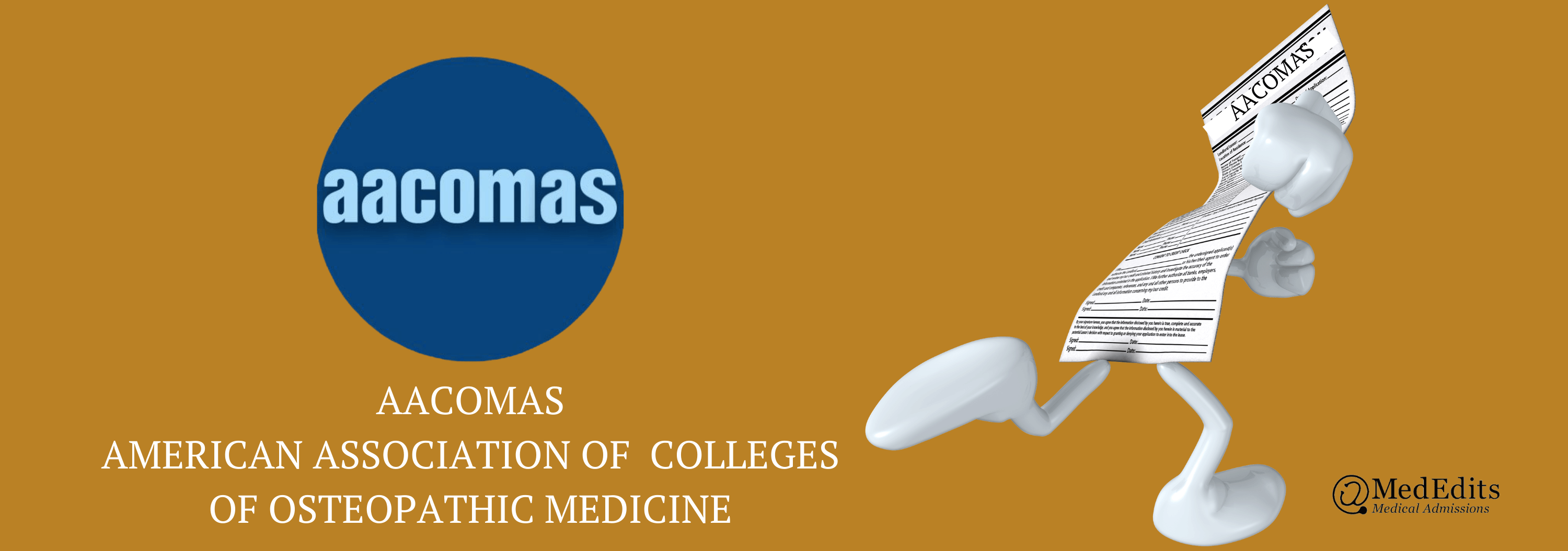
The AACOMAS personal statement is for osteopathic medical schools specifically. As with the AMCAS statement, you need to lay out your journey to medicine as chronologically as possible in 5,300 characters with spaces or less. So you essentially have the same story map as for an AMCAS statement. Most important, you must show you are interested in osteopathy specifically. Therefore, when trying to decide what to include or leave out, prioritize any osteopathy experiences you have had, or those that are in line with the osteopathic philosophy of the mind-body connection, the body as self-healing, and other tenets.
Medical School Application Timeline and When to Write your Personal Statement
If you’re applying to both allopathic and osteopathic schools, you can most likely use the same medical school personal statement for both AMCAS and AACOMAS. In fact, this is why AACOMAS changed the personal statement length to match the AMCAS length several years ago.
Most medical school personal statements can be used for AMCAS and AACOMAS.
Know the Required Medical School Personal Statement Length
Below are the medical schools personal statement length limits for each application system. As you can see, they are all very similar. When you start brainstorming and writing your personal statement, keep these limits in mind.
AMCAS Personal Statement Length : 5,300 characters with spaces.
As per the AAMC website : “The available space for this essay is 5,300 characters (spaces are counted as characters), or approximately one page. You will receive an error message if you exceed the available space.”
AACOMAS Personal Statement Length : 5,300 characters with spaces
TMDSAS Personal Statement Length : 5,000 characters with spaces
As per the TMDSAS Website (Page 36): “The personal essay asks you to explain your motivation to seek a career in medicine. You are asked to include the value of your experiences that prepare you to be a physician. The essay is limited to 5000 characters, including spaces.”
Demonstrate Required Preprofessional Competencies
Next, your want to be aware of the nine preprofessional core competencies as outlined by the Association of American Medical Colleges . Medical school admissions committees want to see, as evidenced by your medical school personal statement and application, that you possess these qualities and characteristics. Now, don’t worry, medical school admissions committees don’t expect you to demonstrate all of them, but, you should demonstrate some.
- Service Orientation
- Social Skills
- Cultural Competence
- Oral Communication
- Ethical Responsibility to Self and Others
- Reliability and Dependability
- Resilience and Adaptability
- Capacity for Improvement
In your personal statement, you might be able to also demonstrate the four thinking and reasoning competencies:
- Critical Thinking
- Quantitative Reasoning
- Written Communication
- Scientific Inquiry
So, let’s think about how to address the personal statement prompts in a slightly different way while ensuring you demonstrate the preprofessional competencies. When writing your personal statement, be sure it answers the four questions that follow and you will “hit” most of the core competencies listed above.
1. What have you done that supports your interest in becoming a doctor?
I always advise applicants to practice “evidence based admissions.” The reader of your essay wants to see the “evidence” that you have done what is necessary to understand the practice of medicine. This includes clinical exposure, research, and community service, among other activities.
2. Why do you want to be a doctor?
This may seem pretty basic – and it is – but admissions officers need to know WHY you want to practice medicine. Many applicants make the mistake of simply listing what they have done without offering insights about those experiences that answer the question, “Why medicine?” Your reasons for wanting to be a doctor may overlap with those of other applicants. This is okay because the experiences in which you participated, the stories you can tell about those experiences, and the wisdom you gained are completely distinct—because they are only yours.
“In admissions committee meetings we were always interested in WHY you wanted to earn a medical degree and how you would contribute to the medical school community.”
Medical school admissions committees want to know that you have explored your interest deeply and that you can reflect on the significance of these clinical experiences and volunteer work. But writing only that you “want to help people” does not support a sincere desire to become a physician; you must indicate why the medical profession in particular—rather than social work, teaching, or another “helping” profession—is your goal.
3. How have your experiences influenced you?
It is important to show how your experiences are linked and how they have influenced you. How did your experiences motivate you? How did they affect what else you did in your life? How did your experiences shape your future goals? Medical school admissions committees like to see a sensible progression of involvements. While not every activity needs to be logically “connected” with another, the evolution of your interests and how your experiences have nurtured your future goals and ambitions show that you are motivated and committed.
4. Who are you as a person? What are your values and ideals?
Medical school admissions committees want to know about you as an individual beyond your interests in medicine, too. This is where answering that third open ended question in the prompt becomes so important. What was interesting about your background, youth, and home life? What did you enjoy most about college? Do you have any distinctive passions or interests? They want to be convinced that you are a good person beyond your experiences. Write about those topics that are unlikely to appear elsewhere in your statement that will offer depth and interest to your work and illustrate the qualities and characteristics you possess.
Related Articles:
- How to Get into Stanford Medical School
- How to Get into NYU Medical School
- How To Get Into Columbia Medical School
- How To Get Into UT Southwestern Medical School
- How To Get Into Harvard Medical School
Complete Your Personal Inventory and Outline (Example Below)
The bulk of your essay should be about your most valuable experiences, personal, academic, scholarly, clinical, academic and extracurricular activities that have impacted your path to medical school and through which you have learned about the practice of medicine. The best personal statements cover several topics and are not narrow in scope. Why is this important? Many different people with a variety of backgrounds, interests, and ideas of what makes a great medical student will be reading your essay. You want to make sure you essay has broad appeal.
The following exercise will help you to determine what experiences you should highlight in your personal statement.
When composing your personal statement, keep in mind that you are writing, in effect, a “story” of how you arrived at this point in your life. But, unlike a “story” in the creative sense, yours must also offer convincing evidence for your decision to apply to medical school. Before starting your personal statement, create an experience- based personal inventory:
- Write down a list of the most important experiences in your life and your development. The list should be all inclusive and comprise those experiences that had the most impact on you. Put the list, which should consist of personal, extracurricular, and academic events, in chronological order.
- From this list, determine which experiences you consider the most important in helping you decide to pursue a career in medicine. This “experience oriented” approach will allow you to determine which experiences best illustrate the personal competencies admissions committees look for in your written documents. Remember that you must provide evidence for your interest in medicine and for most of the personal qualities and characteristics that medical school admissions committees want to see.
- After making your list, think about why each “most important” experience was influential and write that down. What did you observe? What did you learn? What insights did you gain? How did the experience influence your path and choices?
- Then think of a story or illustration for why each experience was important.
- After doing this exercise, evaluate each experience for its significance and influence and for its “story” value. Choose to write about those experiences that not only were influential but that also will provide interesting reading, keeping in mind that your goal is to weave the pertinent experiences together into a compelling story. In making your choices, think about how you will link each experience and transition from one topic to the next.
- Decide which of your listed experiences you will use for your introduction first (see below for more about your introduction). Then decide which experiences you will include in the body of your personal statement, create a general outline, and get writing!
Remember, you will also have your work and activities entries and your secondary applications to write in more detail about your experiences. Therefore, don’t feel you must pack everything in to your statement!
Craft a Compelling Personal Statement Introduction and Body
You hear conflicting advice about application essays. Some tell you not to open with a story. Others tell you to always begin with a story. Regardless of the advice you receive, be sure to do three things:
- Be true to yourself. Everyone will have an opinion regarding what you should and should not write. Follow your own instincts. Your personal statement should be a reflection of you, and only you.
- Start your personal statement with something catchy. Think about the list of potential topics above.
- Don’t rush your work. Composing thoughtful documents takes time and you don’t want your writing and ideas to be sloppy and underdeveloped.
Most important is to begin with something that engages your reader. A narrative, a “story,” an anecdote written in the first or third person, is ideal. Whatever your approach, your first paragraph must grab your reader’s attention and motivate him to want to continue reading. I encourage applicants to start their personal statement by describing an experience that was especially influential in setting them on their path to medical school. This can be a personal or scholarly experience or an extracurricular one. Remember to avoid clichés and quotes and to be honest and authentic in your writing. Don’t try to be someone who you are not by trying to imitate personal statement examples you have read online or “tell them what you think they want to hear”; consistency is key and your interviewer is going to make sure that you are who you say you are!
When deciding what experiences to include in the body of your personal statement, go back to your personal inventory and identify those experiences that have been the most influential in your personal path and your path to medical school. Keep in mind that the reader wants to have an idea of who you are as a human being so don’t write your personal statement as a glorified resume. Include some information about your background and personal experiences that can give a picture of who you are as a person outside of the classroom or laboratory.
Ideally, you should choose two or three experiences to highlight in the body of your personal statement. You don’t want to write about all of your accomplishments; that is what your application entries are for!
Write Your Personal Statement Conclusion
In your conclusion, it is customary to “go full circle” by coming back to the topic—or anecdote—you introduced in the introduction, but this is not a must. Summarize why you want to be a doctor and address what you hope to achieve and your goals for medical school. Write a conclusion that is compelling and will leave the reader wanting to meet you.
Complete Personal Statement Checklist
When reading your medical school personal statement be sure it:
Shows insight and introspection
The best medical school personal statements tell a great deal about what you have learned through your experiences and the insights you have gained.
You want to tell your story by highlighting those experiences that have been the most influential on your path to medical school and to give a clear sense of chronology. You want your statement always to be logical and never to confuse your reader.
Is interesting and engaging
The best personal statements engage the reader. This doesn’t mean you must use big words or be a literary prize winner. Write in your own language and voice, but really think about your journey to medical school and the most intriguing experiences you have had.
Gives the reader a mental image of who you are
You want the reader to be able to envision you as a caregiver and a medical professional. You want to convey that you would be a compassionate provider at the bedside – someone who could cope well with crisis and adversity.
Illustrates your passion for, and commitment to, medicine
Your reader must be convinced that you are excited about and committed to a career in medicine!
Above all, your personal statement should be about you. Explain to your reader what you have done and why you want to be a doctor with insight, compassion, and understanding.
Medical School Personal Statement Myths
Also keep in mind some common myths about personal statements that I hear quite often:
My personal statement must have a theme.
Not true. The vast majority of personal statements do not have themes. In fact, most are somewhat autobiographical and are just as interesting as those statements that are woven around a “theme.” It is only the very talented writer who can creatively write a personal statement around a theme, and this approach often backfires since the applicant fails to answer the three questions above.
My personal statement must be no longer than one page.
Not true. This advice is antiquated and dates back to the days of the written application when admissions committees flipped through pages. If your personal statement is interesting and compelling, it is fine to use the entire allotted space. The application systems have incorporated limits for exactly this reason! Many students, depending on their unique circumstances, can actually undermine their success by limiting their personal statement to a page. That said, never max out a space just for the sake of doing so. Quality writing and perspectives are preferable to quantity.
My personal statement should not describe patient encounters or my personal medical experiences.
Not true. Again, the actual topics on which you focus in your personal statement are less important than the understanding you gained from those experiences. I have successful clients who have written extremely powerful and compelling personal statements that included information about clinical encounters – both personal and professional. Write about whichever experiences were the most important on your path to medicine. It’s always best, however, to avoid spending too much space on childhood and high school activities. Focus instead on those that are more current.
In my personal statement I need to sell myself.
Not exactly true. You never want to boast in your personal statement. Let your experiences, insights, and observations speak for themselves. You want your reader to draw the conclusion – on his or her own – that you have the qualities and characteristics the medical school seeks. Never tell what qualities and characteristics you possess; let readers draw these conclusions on their own based on what you write.

Medical School Personal Statement Examples and Analysis for Inspiration
Below are examples of actual medical school personal statements. You can also likely find medical school personal statements on Reddit.
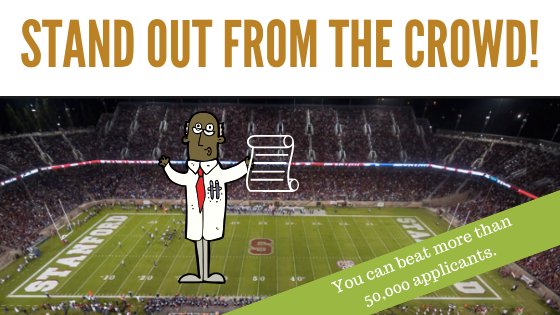
AMCAS Medical School Personal Statement Example and Analysis #1 with Personal Inventory
We will use Amy to illustrate the general process of writing an application to medical school, along with providing the resulting documents. Amy will first list those experiences, personal, extracurricular, and scholarly, that have been most influential in two areas: her life in general and her path to medical school. She will put this personal inventory in chronologic order for use in composing her personal statement.
She will then select those experiences that were the most significant to her and will reflect and think about why they were important. For her application entries, Amy will write about each experience, including those that she considers influential in her life but not in her choice of medicine, in her application entries. Experiences that Amy will not write about in her activity entries or her personal statement are those that she does not consider most influential in either her life or in her choice of medicine.
Amy’s personal inventory (from oldest to most recent)
- Going with my mom to work. She is a surgeon — I was very curious about what she did. I was intrigued by the relationships she had with patients and how much they valued her efforts. I also loved seeing her as “a doctor” since, to me, she was just “mom.”
- I loved biology in high school. I started to think seriously about medicine then. It was during high school that I became fascinated with biology and how the human body worked. I would say that was when I thought, “Hmm, maybe I should be a doctor.”
- Grandmother’s death, senior year of high school. My grandmother’s death was tragic. It was the first time I had ever seen someone close to me suffer. It was one of the most devastating experiences in my life.
- Global Health Trip to Guatemala my freshman year of college. I realized after going to Guatemala that I had always taken my access to health care for granted. Here I saw children who didn’t have basic health care. This made me want to become a physician so I could give more to people like those I met in Guatemala.
- Sorority involvement. Even though sorority life might seem trivial, I loved it. I learned to work with different types of people and gained some really valuable leadership experience.
- Poor grades in college science classes. I still regret that I did badly in my science classes. I think I was immature and was also too involved in other activities and didn’t have the focus I needed to do well. I had a 3.4 undergraduate GPA.
- Teaching and tutoring Jose, a child from Honduras. In a way, meeting Jose in a college tutoring program brought my Guatemala experience to my home. Jose struggled academically, and his parents were immigrants and spoke only Spanish, so they had their own challenges. I tried to help Jose as much as I could. I saw that because he lacked resources, he was at a tremendous disadvantage.
- Volunteering at Excellent Medical Center. Shadowing physicians at the medical center gave me a really broad view of medicine. I learned about different specialties, met many different patients, and saw both great and not-so-great physician role models. Counselor at Ronald McDonald House. Working with sick kids made me appreciate my health. I tried to make them happy and was so impressed with their resilience. It made me realize that good health is everything.
- Oncology research. Understanding what happens behind the scenes in research was fascinating. Not only did I gain some valuable research experience, but I learned how research is done.
- Peer health counselor. Communicating with my peers about really important medical tests gave me an idea of the tremendous responsibility that doctors have. I also learned that it is important to be sensitive, to listen, and to be open-minded when working with others.
- Clinical Summer Program. This gave me an entirely new view of medicine. I worked with the forensics department, and visiting scenes of deaths was entirely new to me. This experience added a completely new dimension to my understanding of medicine and how illness and death affect loved ones.
- Emergency department internship. Here I learned so much about how things worked in the hospital. I realized how important it was that people who worked in the clinical department were involved in creating hospital policies. This made me understand, in practical terms, how an MPH would give me the foundation to make even more change in the future.
- Master’s in public health. I decided to get an MPH for two reasons. First of all, I knew my undergraduate science GPA was an issue so I figured that graduate level courses in which I performed well would boost my record. I don’t think I will write this on my application, but I also thought the degree would give me other skills if I didn’t get into medical school, and I knew it would also give me something on which I could build during medical school and in my career since I was interested in policy work.
As you can see from Amy’s personal inventory list, she has many accomplishments that are important to her and influenced her path. The most influential personal experience that motivated her to practice medicine was her mother’s career as a practicing physician, but Amy was also motivated by watching her mother’s career evolve. Even though the death of her grandmother was devastating for Amy, she did not consider this experience especially influential in her choice to attend medical school so she didn’t write about it in her personal statement.
Amy wrote an experience-based personal statement, rich with anecdotes and detailed descriptions, to illustrate the evolution of her interest in medicine and how this motivated her to also earn a master’s in public health.
Amy’s Medical School Personal Statement Example:
She was sprawled across the floor of her apartment. Scattered trash, decaying food, alcohol bottles, medication vials, and cigarette butts covered the floor. I had just graduated from college, and this was my first day on rotation with the forensic pathology department as a Summer Scholar, one of my most valuable activities on the path to medical school. As the coroner deputy scanned the scene for clues to what caused this woman’s death, I saw her distraught husband. I did not know what to say other than “I am so sorry.” I listened intently as he repeated the same stories about his wife and his dismay that he never got to say goodbye. The next day, alongside the coroner as he performed the autopsy, I could not stop thinking about the grieving man.
Discerning a cause of death was not something I had previously associated with the practice of medicine. As a child, I often spent Saturday mornings with my mother, a surgeon, as she rounded on patients. I witnessed the results of her actions, as she provided her patients a renewed chance at life. I grew to honor and respect my mother’s profession. Witnessing the immense gratitude of her patients and their families, I quickly came to admire the impact she was able to make in the lives of her patients and their loved ones.
I knew I wanted to pursue a career in medicine as my mother had, and throughout high school and college I sought out clinical, research, and volunteer opportunities to gain a deeper understanding of medicine. After volunteering with cancer survivors at Camp Ronald McDonald, I was inspired to further understand this disease. Through my oncology research, I learned about therapeutic processes for treatment development. Further, following my experience administering HIV tests, I completed research on point-of-care HIV testing, to be instituted throughout 26 hospitals and clinics. I realized that research often served as a basis for change in policy and medical practice and sought out opportunities to learn more about both.
All of my medically related experiences demonstrated that people who were ‘behind the scenes’ and had limited or no clinical background made many of the decisions in health care. Witnessing the evolution of my mother’s career further underscored the impact of policy change on the practice of medicine. In particular, the limits legislation imposed on the care she could provide influenced my perspective and future goals. Patients whom my mother had successfully treated for more than a decade, and with whom she had long-standing, trusting relationships, were no longer able to see her, because of policy coverage changes. Some patients, frustrated by these limitations, simply stopped seeking the care they needed. As a senior in college, I wanted to understand how policy transformations came about and gain the tools I would need to help effect administrative and policy changes in the future as a physician. It was with this goal in mind that I decided to complete a master’s in public health program before applying to medical school.
As an MPH candidate, I am gaining insight into the theories and practices behind the complex interconnections of the healthcare system; I am learning about economics, operations, management, ethics, policy, finance, and technology and how these entities converge to impact delivery of care. A holistic understanding of this diverse, highly competitive, market-driven system will allow me, as a clinician, to find solutions to policy, public health, and administration issues. I believe that change can be more effective if those who actually practice medicine also decide where improvements need to be made.
For example, as the sole intern for the emergency department at County Medical Center, I worked to increase efficiency in the ED by evaluating and mapping patient flow. I tracked patients from point of entry to point of discharge and found that the discharge process took up nearly 35% of patients’ time. By analyzing the reasons for this situation, in collaboration with nurses and physicians who worked in the ED and had an intimate understanding of what took place in the clinical area, I was able to make practical recommendations to decrease throughput time. The medical center has already implemented these suggestions, resulting in decreased length of stays. This example illustrates the benefit of having clinicians who work ‘behind the scenes’ establish policies and procedures, impacting operational change and improving patient care. I will also apply what I have learned through this project as the business development intern at Another Local Medical Center this summer, where I will assist in strategic planning, financial analysis, and program reviews for various clinical departments.
Through my mother’s career and my own medical experiences, I have become aware of the need for clinician administrators and policymakers. My primary goal as a physician will be to care for patients, but with the knowledge and experience I have gained through my MPH, I also hope to effect positive public policy and administrative changes.
What’s Good About Amy’s Medical School Personal Statement:
Paragraphs 1 and 2: Amy started her personal statement by illustrating a powerful experience she had when she realized that medical caregivers often feel impotent, and how this contrasted with her understanding of medicine as a little girl going with her mother to work. Recognition of this intense contrast also highlights Amy’s maturity.
Paragraph 3: Amy then “lists” a few experiences that were important to her.
Paragraph 4: Amy describes the commonality in some of her experiences and how her observations were substantiated by watching the evolution of her mother’s practice. She then explains how this motivated her to earn an MPH so she could create change more effectively as a physician than as a layman.
Paragraph 5: Amy then explains how her graduate degree is helping her to better understand the “issues in medicine” that she observed.
Paragraph 6: Amy then describes one exceptional accomplishment she had that highlights what she has learned and how she has applied it.
Paragraph 7: Finally, Amy effectively concludes her personal statement and summarizes the major topics addressed in her essay.
As you can see, Amy’s statement has excellent flow, is captivating and unusual, and illustrates her understanding of, and commitment to, medicine. She also exhibits, throughout her application entries and statement, the personal competencies, characteristics, and qualities that medical school admissions officers are seeking. Her application also has broad appeal; reviewers who are focused on research, cultural awareness, working with the underserved, health administration and policy, teaching, or clinical medicine would all find it of interest.

med school personal statement examples
Osteopathic Medical School Personal Statement Example and Analysis #2
Medical School Personal Statement Example Background: This is a nontraditional applicant who applied to osteopathic medical schools. With a 500 and a 504 on the MCAT , he needed to showcase how his former career and what he learned through his work made him an asset. He also needed to convey why osteopathic medicine was an ideal fit for him. The student does an excellent job illustrating his commitment to medicine and explaining why and how he made the well-informed decision to leave his former career to pursue a career in osteopathic medicine.
What’s Good About It: A nontraditional student with a former career, this applicant does a great job outlining how and why he decided to pursue a career in medicine. Clearly dedicated to service, he also does a great job making it clear he is a good fit for osteopathic medical school and understands this distinctions of osteopathic practice..
Working as a police officer, one comes to expect the unexpected, but sometimes, when the unexpected happens, one can’t help but be surprised. In November 20XX, I had been a police officer for two years when my partner and I happened to be nearby when a man had a cardiac emergency in Einstein Bagels. Entering the restaurant, I was caught off guard by the lifeless figure on the floor, surrounded by spilled food. Time paused as my partner and I began performing CPR, and my heart raced as I watched color return to the man’s pale face.
Luckily, paramedics arrived within minutes to transport him to a local hospital. Later, I watched as the family thanked the doctors who gave their loved one a renewed chance at life. That day, in the “unexpected,” I confirmed that I wanted to become a physician, something that had attracted me since childhood.
I have always been enthralled by the science of medicine and eager to help those in need but, due to life events, my path to achieving this dream has been long. My journey began following high school when I joined the U.S. Army. I was immature and needed structure, and I knew the military was an opportunity to pursue my medical ambitions. I trained as a combat medic and requested work in an emergency room of an army hospital. At the hospital, I started IVs, ran EKGs, collected vital signs, and assisted with codes. I loved every minute as I was directly involved in patient care and observed physicians methodically investigating their patients’ signs and symptoms until they reached a diagnosis. Even when dealing with difficult patients, the physicians I worked with maintained composure, showing patience and understanding while educating patients about their diseases. I observed physicians not only as clinicians but also as teachers. As a medic, I learned that I loved working with patients and being part of the healthcare team, and I gained an understanding of acute care and hospital operations.
Following my discharge in 20XX, I transferred to an army reserve hospital and continued as a combat medic until 20XX. Working as a medic at several hospitals and clinics in the area, I was exposed to osteopathic medicine and the whole body approach to patient care. I was influenced by the D.O.s’ hands-on treatment and their use of manipulative medicine as a form of therapy. I learned that the body cannot function properly if there is dysfunction in the musculoskeletal system.
In 20XX, I became a police officer to support myself as I finished my undergraduate degree and premed courses. While working the streets, I continued my patient care experiences by being the first to care for victims of gunshot wounds, stab wounds, car accidents, and other medical emergencies. In addition, I investigated many unknown causes of death with the medical examiner’s office. I often found signs of drug and alcohol abuse and learned the dangers and power of addiction. In 20XX, I finished my undergraduate degree in education and in 20XX, I completed my premed courses.
Wanting to learn more about primary care medicine, in 20XX I volunteered at a community health clinic that treats underserved populations. Shadowing a family physician, I learned about the physical exam as I looked into ears and listened to the hearts and lungs of patients with her guidance. I paid close attention as she expressed the need for more PCPs and the important roles they play in preventing disease and reducing ER visits by treating and educating patients early in the disease process. This was evident as numerous patients were treated for high cholesterol, elevated blood pressure, and diabetes, all conditions that can be resolved or improved by lifestyle changes. I learned that these changes are not always easy for many in underserved populations as healthier food is often more expensive and sometimes money for prescriptions is not available. This experience opened my eyes to the challenges of being a physician in an underserved area.
The idea of disease prevention stayed with me as I thought about the man who needed CPR. Could early detection and education about heart disease have prevented his “unexpected” cardiac event? My experiences in health care and law enforcement have confirmed my desire to be an osteopathic physician and to treat the patients of the local area. I want to eliminate as many medical surprises as I can.

Texas Medical School Personal Statement Example and Analysis #3
Medical School Personal Statement Example Background: This applicant, who grew up with modest means, should be an inspiration to us all. Rather than allowing limited resources to stand in his way, he took advantage of everything that was available to him. He commuted to college from home and had a part-time job so he was stretched thin, and his initial college performance suffered. However, he worked hard and his grades improved. Most medical school admissions committees seek out applicants like this because, by overcoming adversity and succeeding with limited resources, they demonstrate exceptional perseverance, maturity, and dedication. His accomplishments are, by themselves, impressive and he does an outstanding job of detailing his path, challenges, and commitment to medicine. He received multiple acceptances to top medical schools and was offered scholarships.
What’s Good About It: This student does a great job opening his personal statement with a beautifully written introduction that immediately takes the reader to Central America. He then explains his path, why he did poorly early in college, and goes on to discuss his academic interests and pursuits. He is also clearly invested in research and articulates that he is intellectually curious, motivated, hard working, compassionate and committed to a career in medicine by explaining his experiences using interesting language and details. This is an intriguing statement that makes clear the applicant is worthy of an interview invitation. Finally, the student expresses his interest in attending medical school in Texas.
They were learning the basics of carpentry and agriculture. The air was muggy and hot, but these young boys seemed unaffected, though I and my fellow college students sweated and often complained. As time passed, I started to have a greater appreciation for the challenges these boys faced. These orphans, whom I met and trained in rural Central America as a member of The Project, had little. They dreamed of using these basic skills to earn a living wage. Abandoned by their families, they knew this was their only opportunity to re-enter society as self- sufficient individuals. I stood by them in the fields and tutored them after class. And while I tried my best to instill in them a strong work ethic, it was the boys who instilled in me a desire to help those in need. They gave me a new perspective on my decision to become a doctor.
I don’t know exactly when I decided to become a physician; I have had this goal for a long time. I grew up in the inner city of A City, in Texas and attended magnet schools. My family knew little about higher education, and I learned to seek out my own opportunities and advice. I attended The University with the goal of gaining admission to medical school. When I started college, I lacked the maturity to focus on academics and performed poorly. Then I traveled to Central America. Since I was one of the few students who spoke Spanish, many of the boys felt comfortable talking with me. They saw me as a role model.
The boys worked hard so that they could learn trades that would help them to be productive members of society. It was then I realized that my grandparents, who immigrated to the US so I would have access to greater opportunities, had done the same. I felt like I was wasting what they had sacrificed for me. When I returned to University in the fall, I made academics my priority and committed myself to learn more about medicine .
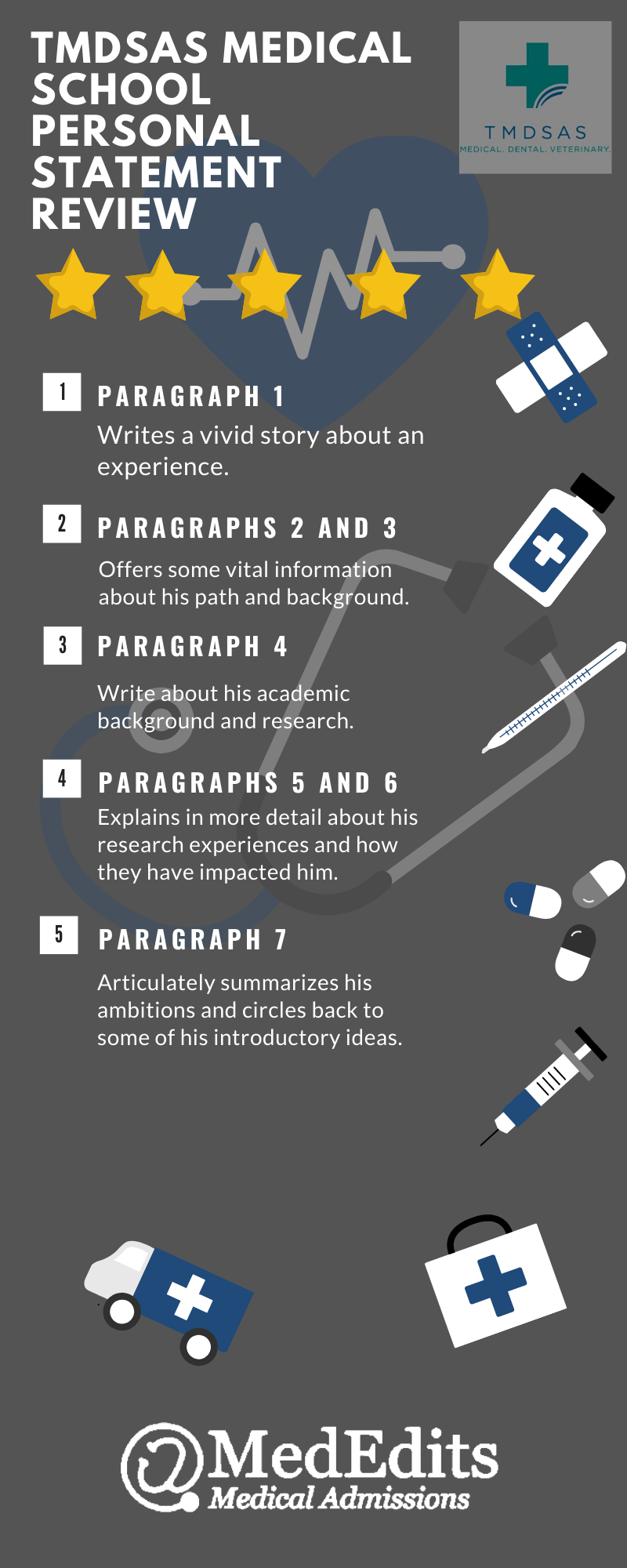
Through my major in neuroscience, I strengthened my understanding of how we perceive and experience life. In systems neurobiology, I learned the physiology of the nervous system. Teaching everything from basic neural circuits to complex sensory pathways, Professor X provided me with the knowledge necessary to conduct research in Parkinson’s disease. My research focused on the ability of antioxidants to prevent the onset of Parkinson’s, and while my project was only a pilot study at the time, Professor X encouraged me to present it at the National Research Conference. During my senior year, I developed the study into a formal research project, recruiting the help of professors of statistics and biochemistry.
Working at the School of Medicine reinforced my analytical skills. I spent my summer in the department of emergency medicine, working with the department chair, Dr. Excellent. Through Dr. Excellent’s mentorship, I participated in a retrospective study analyzing patient charts to determine the efficacy of D-dimer assays in predicting blood clots. The direct clinical relevance of my research strengthened my commitment and motivated my decision to seek out more clinical research opportunities.
A growing awareness of the role of human compassion in healing has also influenced my choice to pursue a career in medicine. It is something no animal model or cell culture can ever duplicate or rival. Working in clinical research has allowed me to see the selflessness of many physicians and patients and their mutual desire to help others. As a research study assistant in the department of surgery, I educate and enroll patients in clinical trials. One such study examines the role of pre-operative substance administration in tumor progression. Patients enrolled in this study underwent six weeks of therapy before having the affected organ surgically excised. Observing how patients were willing to participate in this research to benefit others helped me understand the resiliency of the human spirit.
Working in clinical trials has enabled me to further explore my passion for science, while helping others. Through my undergraduate coursework and participation in volunteer groups I have had many opportunities to solidify my goal to become a physician. As I am working, I sometimes think about my second summer in Central America. I recall how one day, after I had turned countless rows of soil in scorching heat, one of the boys told me that I was a trabajador verdadero—a true worker. I paused as I realized the significance of this comment. While the boy may not have been able to articulate it, he knew I could identify with him. What the boy didn’t know, however, was that had my grandparents not decided to immigrate to the US, I would not have the great privilege of seizing opportunities in this country and writing this essay today. I look forward to the next step of my education and hope to return home to Texas where I look forward to serving the communities I call home.
Final Thoughts
Above all, and as stated in this article numerous times, your personal statement should be authentic and genuine. Write about your path and and journey to this point in your life using anecdotes and observations to intrigue the reader and illustrate what is and was important to you. Good luck!
Medical School Personal Statement Help & Consulting
If all this information has you staring at your screen like a deer in the headlights, you’re not alone. Writing a superb medical school personal statement can be a daunting task, and many applicants find it difficult to get started writing, or to express everything they want to say succinctly. That’s where MedEdits can help. You don’t have to have the best writing skills to compose a stand-out statement. From personal-statement editing alone to comprehensive packages for all your medical school application needs, we offer extensive support and expertise developed from working with thousands of successful medical school applicants. We can’t promise applying to medical school will be stress-free, but most clients tell us it’s a huge relief not to have to go it alone.
MedEdits offers personal statement consulting and editing. Our goal when working with students is to draw out what makes each student distinctive. How do we do this? We will explore your background and upbringing, interests and ideals as well as your accomplishments and activities. By helping you identify the most distinguishing aspects of who you are, you will then be able to compose an authentic and genuine personal statement in your own voice to capture the admissions committee’s attention so you are invited for a medical school interview. Our unique brainstorming methodology has helped hundreds of aspiring premeds gain acceptance to medical school.

Sample Medical School Personal Statement

Example Medical School Personal Statement

- Website Disclaimer
- Terms and Conditions
- MedEdits Privacy Policy

Medical School Personal Statement Editing
Our experts will review and edit your personal statement to help you highlight your story and credentials, and show you in the most positive light as an applicant, even if you do not have the highest mcat scores., still have questions, 929 - 332 - 4922, [email protected].
Copyright 2020 © All rights Reserved. Privacy Policy . Blog . Tutoring Jobs . Website Design by KRS Creative .
“COMLEX-USA” is a registered trademark of the National Board of Osteopathic Medical Examiners, Inc. (NBOME). “USMLE” is a registered trademark of the National Board of Medical Examiners (NBME). SelectMedTutors has no affiliation with, nor is endorsed by, NBOME or NBME, and both terms are used pursuant to the Fair Use Doctrine.
TOP LOCATIONS
- Dallas Fort Worth
- Kansas City
- Long Island
- Los Angeles
- New York City
- Philadelphia
- San Francisco-Bay Area
- Washington DC
Loading Page
HIGH SCHOOL
- ACT Tutoring
- SAT Tutoring
- PSAT Tutoring
- ASPIRE Tutoring
- SHSAT Tutoring
- STAAR Tutoring
GRADUATE SCHOOL
- MCAT Tutoring
- GRE Tutoring
- LSAT Tutoring
- GMAT Tutoring
- AIMS Tutoring
- HSPT Tutoring
- ISAT Tutoring
- SSAT Tutoring
Search 50+ Tests
Math tutoring.
- Elementary Math
- Pre-Calculus
- Trigonometry
science tutoring
Foreign languages.
- Mandarin Chinese
elementary tutoring
- Computer Science
Search 350+ Subjects
- Video Overview
- Tutor Selection Process
- Online Tutoring
- Mobile Tutoring
- Instant Tutoring
- How We Operate
- Our Guarantee
- Impact of Tutoring
- Reviews & Testimonials
- Media Coverage
- About Varsity Tutors
FEATURED ARTICLES
4 midterm mistakes to avoid.

Midterm season can be a stressful time. You’ve made your study guide, attended study groups, and flipped through your flashcards one last time. However, on exam day, there are mistakes students often make when tackling the test. These mistakes can cost you points that may affect your overall grade in the course. Midterm exam mistakes can include poor time management, spending too much time on individual questions, and not showing your work. Your midterm exam grade can be crucial to your success in the course. So set yourself up for success—here are four midterm mistakes to avoid: Midterm mistake #1: Failing to read th ... Read More About 4 Midterm Mistakes to Avoid
5 Books to Read With Your Family to Celebrate World Book and Copyright Day
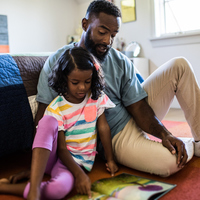
Did you know that World Book and Copyright Day falls on Thursday, April 23? Hosted by the United Nations, World Book and Copyright Day celebrates the joys and connections of reading and literacy. Here are five books to read with your family to join in on the worldwide celebration: 1. Last Stop on Market Street by Matt de la Peña Written by Matt de la Peña and illustrated by Christian Robinson, Last Stop on Market Street chronicles a bus ride through the city with CJ and his grandmother. It’s a rainy Sunday. CJ is inquisitive; no question is too big or too small for him. “How come we gotta wait for the bus in all thi ... Read More About 5 Books to Read With Your Family to Celebrate World Book and Copyright Day
8 Books to Read With Your Kids While Social Distancing

As many schools have closed in response to COVID-19 and nearly everyone is social distancing, we’re all reworking our routines and reimagining what it means to learn from home. There are excellent online resources for students—a number of zoos and museums have opened their virtual doors, for example. But for an analog break, consider creating a reading list with your child. Here are eight books to get you started. Books to read with elementary school students Reading is built into elementary-age students’ school days, and it’s important for them to incorporate it into their home learning in order to keep up with fluen ... Read More About 8 Books to Read With Your Kids While Social Distancing
How to Stay Focused When You’re Working from Home

If you’re accustomed to doing your job in an office setting, transitioning to working from home can feel unexpectedly difficult. Often, it’s easy to envision how simple working from your home might be. Once you start to do it, however, you may find yourself struggling to stay focused and to keep up with your work at the same pace as you could before. With the uncertainty COVID-19 brings in regards to when you’ll return to the office, it’s vital to find strategies to thrive while working from home. Here are five: Choose a specific work area It can be tempting to sit on your couch or in bed while working from home. This ... Read More About How to Stay Focused When You’re Working from Home
Caltech Admissions Information
CalTech, a world-renowned institution for science and technology, has a highly competitive admissions process. Here is important information about the admission process for CalTech. When to Apply and Early Application CalTech operates on a regular decision application deadline for most applicants. The regular decision deadline is typically in early January, with admissions decisions released in late March. CalTech also offers Restrictive Early Action (REA), which is a non-binding early admissions process for students who are confident that Caltech is their first-choice university. REA applications are due in early November and applicants wil ... Read More About Caltech Admissions Information
Columbia University Admissions Information
Columbia University is a highly esteemed institution with a competitive admissions process. To give you a comprehensive overview of the admissions process for Columbia University, here are the key details you need to know: Application Deadlines: Columbia University operates on a regular decision application deadline for most undergraduate programs. The deadline for regular decision applications is typically in early January. However, it's important to note that Columbia also offers an Early Decision (ED) program for students who have a strong preference for attending Columbia and are ready to commit to enrolling if admitted. The Early Decisi ... Read More About Columbia University Admissions Information
Duke University Admissions Information
Duke University is a highly selective institution with a competitive admissions process. When applying to Duke, it's important to showcase your academic achievements, personal qualities, and fit with the university. Here's some comprehensive information about the admissions process for Duke University: Application Deadlines: Regular Decision: The regular decision deadline is typically in early January. Admissions decisions are released by late March. Early Decision: Duke offers an Early Decision (ED) program, which is binding. The deadline for ED is usually in early November, and decisions are released by mid-December. Application Require ... Read More About Duke University Admissions Information
Princeton Admissions Information
As a highly competitive Ivy League institution, Princeton University is known for its rigorous academic environment and prestigious reputation. The admissions process is thorough and selective, and it's important to approach it with both preparation and genuine passion for what Princeton has to offer. When to Apply Princeton University has two main admissions cycles: Early Action and Regular Decision. The Early Action deadline is typically November 1st, and this is non-binding, meaning you can still apply to and accept offers from other universities if you're accepted. The Regular Decision deadline is usually January 1st. Application Requir ... Read More About Princeton Admissions Information
Swarthmore College Admissions Information
Swarthmore College is a highly selective liberal arts institution known for its rigorous academics and diverse intellectual community. To provide you with a comprehensive overview of the admissions process for Swarthmore College, here are the key details you need to know: When to Apply and Early Application: Swarthmore College operates on a regular decision application deadline for most applicants. The regular decision deadline is typically in early January, with admissions decisions released in late March. However, Swarthmore also offers an Early Decision (ED) program, which is a binding commitment to enroll if admitted. The Early Decision ... Read More About Swarthmore College Admissions Information
- Advanced Placement
- Application Essay
- Ask an Admissions Expert
- Business School
- Business School Admissions
- Career Advice
- College Admissions
- College Applications
- College Essays
- College Experience Interviews
- College Interviews
- College Life
- College Majors
- Education Trends
- Elementary School
- Graduate School
- Graduate School Admissions
- High School
- Infographic
- Internships
- Law School Admissions
- Learning and Studying Tips
- Med School Admissions
- Middle School
- Scholarships
- Summer Programs
- View All Past Articles

- Medical School Application
Medical School Personal Statement Examples That Got 6 Acceptances
Featured Admissions Expert: Dr. Monica Taneja, MD

These 30 exemplary medical school personal statement examples come from our students who enrolled in one of our application review programs. Most of these examples led to multiple acceptance for our students. For instance, the first example got our student accepted into SIX medical schools. Here's what you'll find in this article: We'll first go over 30 medical school personal statement samples, then we'll provide you a step-by-step guide for composing your own outstanding statement from scratch. If you follow this strategy, you're going to have a stellar statement whether you apply to the most competitive or the easiest medical schools to get into .
>> Want us to help you get accepted? Schedule a free strategy call here . <<
Listen to the blog!
Article Contents 35 min read
Stellar medical school personal statement examples that got multiple acceptances, medical school personal statement example #1.
I made my way to Hillary’s house after hearing about her alcoholic father’s incarceration. Seeing her tearfulness and at a loss for words, I took her hand and held it, hoping to make things more bearable. She squeezed back gently in reply, “thank you.” My silent gesture seemed to confer a soundless message of comfort, encouragement and support.
Through mentoring, I have developed meaningful relationships with individuals of all ages, including seven-year-old Hillary. Many of my mentees come from disadvantaged backgrounds; working with them has challenged me to become more understanding and compassionate. Although Hillary was not able to control her father’s alcoholism and I had no immediate solution to her problems, I felt truly fortunate to be able to comfort her with my presence. Though not always tangible, my small victories, such as the support I offered Hillary, hold great personal meaning. Similarly, medicine encompasses more than an understanding of tangible entities such as the science of disease and treatment—to be an excellent physician requires empathy, dedication, curiosity and love of problem solving. These are skills I have developed through my experiences both teaching and shadowing inspiring physicians.
Medicine encompasses more than hard science. My experience as a teaching assistant nurtured my passion for medicine; I found that helping students required more than knowledge of organic chemistry. Rather, I was only able to address their difficulties when I sought out their underlying fears and feelings. One student, Azra, struggled despite regularly attending office hours. She approached me, asking for help. As we worked together, I noticed that her frustration stemmed from how intimidated she was by problems. I helped her by listening to her as a fellow student and normalizing her struggles. “I remember doing badly on my first organic chem test, despite studying really hard,” I said to Azra while working on a problem. “Really? You’re a TA, shouldn’t you be perfect?” I looked up and explained that I had improved my grades through hard work. I could tell she instantly felt more hopeful, she said, “If you could do it, then I can too!” When she passed, receiving a B+;I felt as if I had passed too. That B+ meant so much: it was a tangible result of Azra’s hard work, but it was also symbol of our dedication to one another and the bond we forged working together.
My passion for teaching others and sharing knowledge emanates from my curiosity and love for learning. My shadowing experiences in particular have stimulated my curiosity and desire to learn more about the world around me. How does platelet rich plasma stimulate tissue growth? How does diabetes affect the proximal convoluted tubule? My questions never stopped. I wanted to know everything and it felt very satisfying to apply my knowledge to clinical problems.
Shadowing physicians further taught me that medicine not only fuels my curiosity; it also challenges my problem solving skills. I enjoy the connections found in medicine, how things learned in one area can aid in coming up with a solution in another. For instance, while shadowing Dr. Steel I was asked, “What causes varicose veins and what are the complications?” I thought to myself, what could it be? I knew that veins have valves and thought back to my shadowing experience with Dr. Smith in the operating room. She had amputated a patient’s foot due to ulcers obstructing the venous circulation. I replied, “veins have valves and valve problems could lead to ulcers.” Dr. Steel smiled, “you’re right, but it doesn’t end there!” Medicine is not disconnected; it is not about interventional cardiology or orthopedic surgery. In fact, medicine is intertwined and collaborative. The ability to gather knowledge from many specialties and put seemingly distinct concepts together to form a coherent picture truly attracts me to medicine.
It is hard to separate science from medicine; in fact, medicine is science. However, medicine is also about people—their feelings, struggles and concerns. Humans are not pre-programmed robots that all face the same problems. Humans deserve sensitive and understanding physicians. Humans deserve doctors who are infinitely curious, constantly questioning new advents in medicine. They deserve someone who loves the challenge of problem solving and coming up with innovative individualized solutions. I want to be that physician. I want to be able to approach each case as a unique entity and incorporate my strengths into providing personalized care for my patients. Until that time, I may be found Friday mornings in the operating room, peering over shoulders, dreaming about the day I get to hold the drill.
Let's take a step back to consider what this medical school personal statement example does, not just what it says. It begins with an engaging hook in the first paragraph and ends with a compelling conclusion. The introduction draws you in, making the essay almost impossible to put down, while the conclusion paints a picture of someone who is both passionate and dedicated to the profession. In between the introduction and conclusion, this student makes excellent use of personal narrative. The anecdotes chosen demonstrate this individual's response to the common question, " Why do you want to be a doctor ?" while simultaneously making them come across as compassionate, curious, and reflective. The essay articulates a number of key qualities and competencies, which go far beyond the common trope, I want to be a doctor because I want to help people.
This person is clearly a talented writer, but this was the result of several rounds of edits with one of our medical school admissions consulting team members and a lot of hard work on the student's part. If your essay is not quite there yet, or if you're just getting started, don't sweat it. Do take note that writing a good personal essay takes advanced planning and significant effort.
I was one of those kids who always wanted to be doctor. I didn’t understand the responsibilities and heartbreaks, the difficult decisions, and the years of study and training that go with the title, but I did understand that the person in the white coat stood for knowledge, professionalism, and compassion. As a child, visits to the pediatrician were important events. I’d attend to my hair and clothes, and travel to the appointment in anticipation. I loved the interaction with my doctor. I loved that whoever I was in the larger world, I could enter the safe space of the doctor’s office, and for a moment my concerns were heard and evaluated. I listened as my mother communicated with the doctor. I’d be asked questions, respectfully examined, treatments and options would be weighed, and we would be on our way. My mother had been supported in her efforts to raise a well child, and I’d had a meaningful interaction with an adult who cared for my body and development. I understood medicine as an act of service, which aligned with my values, and became a dream.
I was hospitalized for several months as a teenager and was inspired by the experience, despite the illness. In the time of diagnosis, treatment and recovery, I met truly sick children. Children who were much more ill than me. Children who wouldn’t recover. We shared a four-bed room, and we shared our medical stories. Because of the old hospital building, there was little privacy in our room, and we couldn’t help but listen-in during rounds, learning the medical details, becoming “experts” in our four distinct cases. I had more mobility than some of the patients, and when the medical team and family members were unavailable, I’d run simple errands for my roommates, liaise informally with staff, and attend to needs. To bring physical relief, a cold compress, a warmed blanket, a message to a nurse, filled me with such an intense joy and sense of purpose that I applied for a volunteer position at the hospital even before my release.
I have since been volunteering in emergency departments, out-patient clinics, and long term care facilities. While the depth of human suffering is at times shocking and the iterations of illness astounding, it is in the long-term care facility that I had the most meaningful experiences by virtue of my responsibilities and the nature of the patients’ illnesses. Charles was 55 when he died. He had early onset Parkinson’s Disease with dementia that revealed itself with a small tremor when he was in his late twenties. Charles had a wife and three daughters who visited regularly, but whom he didn’t often remember. Over four years as a volunteer, my role with the family was to fill in the spaces left by Charles’ periodic inability to project his voice as well as his growing cognitive lapses. I would tell the family of his activities between their visits, and I would remind him of their visits and their news. This was a hard experience for me. I watched as 3 daughters, around my own age, incrementally lost their father. I became angry, and then I grew even more determined.
In the summer of third year of my Health Sciences degree, I was chosen to participate in an undergraduate research fellowship in biomedical research at my university. As part of this experience, I worked alongside graduate students, postdoctoral fellows, medical students, physicians, and faculty in Alzheimer’s research into biomarkers that might predict future disease. We collaborated in teams, and by way of the principal investigator’s careful leadership, I learned wherever one falls in terms of rank, each contribution is vital to the outcome. None of the work is in isolation. For instance, I was closely mentored by Will, a graduate student who had been in my role the previous summer. He, in turn, collaborated with post docs and medical students, turning to faculty when roadblocks were met. While one person’s knowledge and skill may be deeper than another’s, individual efforts make up the whole. Working in this team, aside from developing research skills, I realized that practicing medicine is not an individual pursuit, but a collaborative commitment to excellence in scholarship and leadership, which all begins with mentorship.
Building on this experience with teamwork in the lab, I participated in a global health initiative in Nepal for four months, where I worked alongside nurses, doctors, and translators. I worked in mobile rural health camps that offered tuberculosis care, monitored the health and development of babies and children under 5, and tended to minor injuries. We worked 11-hour days helping hundreds of people in the 3 days we spent in each location. Patients would already be in line before we woke each morning. I spent each day recording basic demographic information, blood pressure, pulse, temperature, weight, height, as well as random blood sugar levels, for each patient, before they lined up to see a doctor. Each day was exhausting and satisfying. We helped so many people. But this satisfaction was quickly displaced by a developing understanding of issues in health equity.
My desire to be doctor as a young person was not misguided, but simply naïve. I’ve since learned the role of empathy and compassion through my experiences as a patient and volunteer. I’ve broadened my contextual understanding of medicine in the lab and in Nepal. My purpose hasn’t changed, but what has developed is my understanding that to be a physician is to help people live healthy, dignified lives by practicing both medicine and social justice.
28 More Medical School Personal Statement Examples That Got Accepted
What my sister went through pushed me to strengthen my knowledge in medical education, patient care, and research. These events have influenced who I am today and helped me determine my own passions. I aspire to be a doctor because I want to make miracles, like my sister, happen. Life is something to cherish; it would not be the same if I did not have one of my four sisters to spend it with. As all stories have endings, I hope that mine ends with me fulfilling my dream of being a doctor, which has been the sole focus of my life to this point. I would love nothing more than to dedicate myself to such a rewarding career, where I achieve what those doctors did for my family. Their expertise allowed my sister to get all the care she needed for her heart, eyes, lungs, and overall growth. Those physicians gave me more than just my little sister, they gave me the determination and focus needed to succeed in the medical field, and for that, I am forever grateful. ","label":"Medical School Personal Statement Example #3","title":"Medical School Personal Statement Example #3"}]" code="tab4" template="BlogArticle">
I came to America, leaving my parents and friends behind, to grasp my chance at a better future. I believe this chance is now in front of me. Medicine is the only path I truly desire because it satisfies my curiosity about the human body and it allows me to directly interact with patients. I do not want to miss this chance to further hone my skills and knowledge, in order to provide better care for my patients. ","label":"Medical School Personal Statement #4","title":"Medical School Personal Statement #4"}]" code="tab5" template="BlogArticle">
The time I have spent in various medical settings has confirmed my love for the field. Regardless of the environment, I am drawn to patients and their stories, like that scared young boy at AMC. I am aware that medicine is a constantly changing landscape; however, one thing that has remained steadfast over the years is putting the patient first, and I plan on doing this as a physician. All of my experiences have taught me a great deal about patient interaction and global health, however, I am left wanting more. I crave more knowledge to help patients and become more useful in the healthcare sector. I am certain medical school is the path that will help me reach my goal. One day, I hope to use my experiences to become an amazing doctor like the doctors that treated my sister, so I can help other children like her. ","label":"Medical School Personal Statement Example #5","title":"Medical School Personal Statement Example #5"}]" code="tab6" template="BlogArticle">
My interest in the field of medicine has developed overtime, with a common theme surrounding the importance of personal health and wellness. Through my journey in sports, travelling, and meeting some incredible individuals such as Michael, I have shifted my focus from thinking solely about the physical well-being, to understanding the importance of mental, spiritual, and social health as well. Being part of a profession that emphasizes continuous education, and application of knowledge to help people is very rewarding, and I will bring compassion, a hard work ethic and an attitude that is always focused on bettering patient outcomes. ","label":"Medical School Personal Statement Example # 7","title":"Medical School Personal Statement Example # 7"}]" code="tab8" template="BlogArticle">
Medicine embodies a hard science, but it is ultimately a profession that treats people. I have seen firsthand that medicine is not a \u201cone-treatment-fits-all\u201d practice, as an effective physician takes a holistic approach. This is the type of physician I aspire to be: one who refuses to shy away from the humanity of patients and their social context, and one who uses research and innovation to improve the human condition. So, when I rethink \u201cwhy medicine?\u201d, I know it\u2019s for me \u2013 because it is a holistic discipline, because it demands all of me, because I am ready to absorb the fascinating knowledge and science that dictates human life, and engage with humanity in a way no other profession allows for. Until the day that I dawn the coveted white coat, you can find me in inpatient units, comforting the many John\u2019s to come, or perhaps at the back of an operating room observing a mitral valve repair \u2013 dreaming of the day the puck is in my zone. ","label":"Medical School Personal Statement Example #8","title":"Medical School Personal Statement Example #8"}]" code="tab9" template="BlogArticle">
When I signed up to be a live DJ, I didn't know that the oral skills I practiced on-air would influence all aspects of my life, let alone lead me to consider a career in the art of healing. I see now, though, the importance of these key events in my life that have allowed me to develop excellent communication skills--whether that be empathic listening, reading and giving non-verbal cues, or verbal communication. I realize I have always been on a path towards medicine. Ultimately, I aim to continue to strengthen my skills as I establish my role as a medical student and leader: trusting my choices, effectively communicating, and taking action for people in need. ","label":"Medical School Personal Statement Example #9","title":"Medical School Personal Statement Example #9"}]" code="tab10" template="BlogArticle">
\u201cWhy didn\u2019t I pursue medicine sooner?\u201d Is the question that now occupies my mind. Leila made me aware of the unprofessional treatment delivered by some doctors. My subsequent activities confirmed my desire to become a doctor who cares deeply for his patients and provides the highest quality care. My passion for research fuels my scientific curiosity. I will continue to advocate for patient equality and fairness. Combining these qualities will allow me to succeed as a physician. ","label":"Medical School Personal Statement Example #10","title":"Medical School Personal Statement Example #10"}]" code="tab11" template="BlogArticle">
Medical school personal statement example: #11
Medical school personal statement example: #12, medical school personal statement example: #13, medical school personal statement example: #14, medical school personal statement example: #15, medical school personal statement example: #16, medical school personal statement example: #17, medical school personal statement example: #18, medical school personal statement example: #19, medical school personal statement example: #20, medical school personal statement example: #21, medical school personal statement example: #22, medical school personal statement example: #23, medical school personal statement example: #24, medical school personal statement example: #25, medical school personal statement example: #26, medical school personal statement example: #27, medical school personal statement example: #28, medical school personal statement example: #29, medical school personal statement example: #30.
Please note that all personal statements are the property of the students who wrote them, re-printed with permission. Names and identifying characteristics have been changed. Plagiarism detection software is used when evaluating personal statements. Plagiarism is grounds for disqualification from the application. ","label":"NOTE","title":"NOTE"}]" code="tab2" template="BlogArticle">
As one of the most important medical school requirements , the personal statement tells your story of why you decided to pursue the medical profession. Keep in mind that personal statements are one of the key factors that affect medical school acceptance rates . This is why it's important to write a stellar essay!
But this is easier said than done. In fact, medical school personal statements remain one of the most challenging parts of students' journeys to medical school. Here's our student Melissa sharing her experience of working on her personal statement:
"I struggled making my personal statement personal... I couldn't incorporate my feelings, motives and life stories that inspired me to pursue medicine into my personal statement" -Melissa, BeMo Student
Our student Rishi, who is not a student at the Carver College of Medicine , learned about the importance of the medical school personal statement the hard way:
"If you're a reapplicant like me, you know we all dread it but you have to get ready to answer what has changed about your application that we should accept you this time. I had an existing personal statement that did not get me in the first time so there was definitely work to be done." - Rishi, BeMo Student, current student at the Carver College of Medicine
The importance of the medical school personal statement can actually increase if you are applying to medical school with any red flags or setbacks, as out student Kannan did:
"I got 511 on my second MCAT try... My goal was anything over median of 510 so anything over that was honestly good with me because it's just about [creating] a good personal statement at that point... I read online about how important the personal statement [is]... making sure [it's] really polished and so that's when I decided to get some professional help." - Kannan, BeMo Student, current student at the Schulich School of Medicine
As you can see from these testimonials, your medical school personal statement can really make a difference. So we are here to help you get started writing your own personal statement. Let's approach this step-by-step. Below you will see how we will outline the steps to creating your very best personal statement. And don't forget that if you need to see more examples, you can also check out our AMCAS personal statement examples, AACOMAS personal statement examples and TMDSAS personal statement examples to further inspire you!
Here's a quick run-down of what we'll cover in the article:
Now let's dive in deeper!
#1 Understanding the Qualities of a Strong Med School Personal Statement
Before discussing how to write a strong medical school personal statement, we first need to understand the qualities of a strong essay. Similar to crafting strong medical school secondary essays , writing a strong personal statement is a challenging, yet extremely important, part of your MD or MD-PhD programs applications. Your AMCAS Work and Activities section may show the reader what you have done, but the personal statement explains why. This is how Dr. Neel Mistry, MD and our admissions expert, prepared for his medical school personal statement writing:
"The personal statement is an opportunity for you to shine and really impress the committee to invite you for an interview. The personal statement is your chance to be reflective and go beyond what is stated on your CV and [activities]. In order to stand out, it is important to answer the main questions [of medical school personal statements] well: a bit about yourself and what led you to medicine, why you would make an ideal medical student and future physician, what attracts you to [medicine], and what sets you apart from the other candidates. The key here is answering the last two questions well. Most candidates simply highlight what they have done, but do not reflect on it or mention how what they have done has prepared them for a future medical career." - Dr. Neel Mistry, MD
A personal statement should be deeply personal, giving the admissions committee insight into your passions and your ultimate decision to pursue a career in medicine. A compelling and introspective personal statement can make the difference between getting an interview and facing medical school rejection . Review our blogs to find out how to prepare for med school interviews and learn the most common medical school interview questions .
As you contemplate the task in front of you, you may be wondering what composing an essay has to do with entering the field of medicine. Many of our students were surprised to learn that medical school personal statements are so valued by med schools. The two things are more closely related than you think. A compelling personal statement demonstrates your written communication skills and highlights your accomplishments, passions, and aspirations. The ability to communicate a complex idea in a short space is an important skill as a physician. You should demonstrate your communication skills by writing a concise and meaningful statement that illustrates your best attributes. Leaving a lasting impression on your reader is what will lead to interview invitations.
A quick note: if you are applying to schools that do not require the formal medical school personal statement, such as medical schools in Canada , you should still learn how to write such essays. Many medical schools in Ontario , for example, ask for short essays for supplementary questionnaires. These are very similar to the personal statement. Knowing how to brainstorm, write, and format your answers is key to your success!!!
You want to give yourself as much time as possible to write your statement. Do not think you can do this in an evening or even in a week. Some statements take months. My best statement took almost a year to get right. Allow yourself time and start early to avoid added stress. Think of the ideas you want to include and brainstorm possible ways to highlight these ideas. Ask your friends for ideas or even brainstorm your ideas with people you trust. Get some feedback early to make sure you are headed in the right direction.
All personal statements for medical school, often start by explaining why medicine is awesome; the admission committee already knows that. You should explain why you want a career in medicine. What is it about the practice of medicine that resonates with who you are? Naturally, this takes a lot of reflection around who you are. Here are some additional questions you can consider as you go about brainstorming for your essay:
- What motivates you to learn more about medicine?
- What is something you want them to know about you that isn't in your application?
- Where were you born, how did you grow up, and what type of childhood did you have growing up (perhaps including interesting stories about your siblings, parents, grandparents)?
- What kinds of early exposure to the medical field left an impression on you as a child?
- Did you become familiar with and interested in the field of medicine at an early stage of your life? If so, why?
- What are your key strengths, and how have you developed these?
- What steps did you take to familiarize yourself with the medical profession?
- Did you shadow a physician? Did you volunteer or work in a clinical setting? Did you get involved in medical research?
- What challenges have you faced? Have these made an impact on what you chose to study?
- What are your favorite activities?
- What kinds of extracurriculars for medical school or volunteer work have you done, and how have these shaped who you are, your priorities, and or your perspectives on a career in medicine?
- What was your "Aha!" moment?
- When did your desire to become a doctor solidify?
- How did you make the decision to apply to medical school?
You shouldn't try to answer all of these in your essay. Try only a few main points that will carry over into the final draft. Use these to brainstorm and gather ideas. Start developing your narrative by prioritizing the most impactful responses to these prompts and the ideas that are most relevant to your own experiences and goals. The perfect personal statement not only shows the admissions committee that you have refined communication skills, but also conveys maturity and professionalism. It should also display your motivation and suitability for medical practice. Here's how our student Alison, who was a non-traditional applicant with a serious red flag in her application, used her brainstorming sessions with our admissions experts to get a theme going in her medical school personal statement and her overall application package:
"I think it was during my brainstorming session that we really started talking about... what the theme [was] going to be for my application. And I think that was really helpful in and of itself. Just [reflecting] 'Hey, what's your focus going to be like? How are we going to write this? What's the style going to be?' Just to create an element of consistency throughout..." Alison, BeMo Student, current student at Dell Medical School
After brainstorming, you should be able to clearly see a few key ideas, skills, qualities, and intersections that you want to write about. Once you've isolated the elements you want to explore in your essay (usually 2-4 key ideas), you can begin building your outline. In terms of structure, this should follow the standard academic format, with an introduction, body paragraphs, and a conclusion.
As you begin thinking about what to include in your personal essay, remember that you are writing for a specific audience with specific expectations. Your evaluator will be familiar with the key qualities desired by medical schools, as informed by the standards of the profession. But keep in mind that they too are human, and they respond well to well-crafted, engaging essays that tell a story. Here's what our student Alison had to share about keeping your audience in mind when writing your personal statement:
"Make it easy for the reader to be able to work [their] way through [your personal statement]. Because, at the end of the day, I think one thing that helped me a lot was being able to think about who was going to be reading this application and it's going to be these people that are sitting around a desk or sitting at a table and [go] through massive numbers of applications every single day. And the easier and more digestible that you can make it for them, gives you a little bit of a win." - Alison, BeMo student, current student at Dell Medical School
The admissions committee will be examining your essay through the lens of their particular school's mission, values, and priorities. You should think about your experiences with reference to the AAMC Core Competencies and to each school's mission statement so that you're working toward your narrative with the institution and broader discipline in mind.
Review AAMC Core Competencies : The AAMC Core Competencies are the key characteristics and skills sought by U.S. medical schools. These are separated into three general categories:
You are not expected to have mastered all of these competencies at this stage of your education. Display those that are relevant to your experiences will help demonstrate your commitment to the medical profession.
Review the school's mission statement: Educational institutions put a lot of time and care into drafting their school's vision. The mission statement will articulate the overall values and priorities of each university, giving you insight into what they might seek in candidates, and thus what you should try to display in your personal statement. Echoing the values of the university helps illustrate that you are a good fit for their intellectual culture. The mission statement may help you identify other priorities of the university, for example, whether they prioritize research-based or experiential-based education. All this research into your chosen medical schools will help you tremendously not only when you write you personal statement, but also the rest of your medical school application components, including your medical school letter of intent if you ever need to write one later.
Just like the personal statement is, in essence, a prompt without a prompt. They give you free rein to write your own prompt to tell your story. This is often difficult for students as they find it hard to get started without having a true direction. Below is a list of ideas to get your creative juices flowing. Use these prompts as a starting point for your essay. Also, they are a great way of addressing why you want to be a doctor without saying something generic.
- The moment your passion for medicine crystallized
- The events that led you toward this path
- Specific instances in which you experienced opportunities
- Challenges that helped shape your worldview
- Your compassion, resilience, or enthusiastic collaboration
- Demonstrate your commitment to others
- Your dependability
- Your leadership skills
- Your ability to problem-solve or to resolve a conflict
These are personal, impactful experiences that only you have had. Focus on the personal, and connect that to the values of your future profession. Do that and you will avoid writing the same essay as everyone else. Dr. Monica Taneja, MD and our admissions expert, shares her tip that got her accepted to the University of Maryland School of Medicine :
"I focused on my journey to medicine and opportunities that I sought out along the way. Everyone’s path and validation is unique, so walking the reader through your growth to the point of application will naturally be different, but that's what I wanted to share in my personal statement." - Dr. Monica Taneja, MD
Admissions committees don't want your resumé in narrative form. The most boring essays are those of applicants listing their accomplishments. Remember, all that stuff is already in the activities section of the application. This is where you should discuss interesting or important life events that shaped you and your interest in medicine (a service trip to rural Guatemala, a death in the family, a personal experience as a patient). One suggestion is to have an overarching theme to your essay to tie everything together, starting with an anecdote. Alternatively, you can use one big metaphor or analogy through the essay. Dr. Jaime Cazes, MD and experienced admissions committee member of the University of Toronto Faculty of Medicine, encourages you to be creative when it comes to the theme of your personal statement:
"It is very easy to make the “cookie cutter” personal statement. To a reviewer who is reading tens of these at a time it can become quite boring. What I did was [tell] a story. Like any good novel, the stories' first lines are meant to hook the reader. This can be about anything if you can bring it back and relate it to your application. It could be about the time your friend was smashed up against the boards in hockey and you, with your limited first aid experience helped to treat him. It is important that the story be REAL." - Dr. Jaime Cazes, MD
Your personal statement must be well-organized, showing a clear, logical progression, as well as connections between ideas. It is generally best to use a chronological progression since this mirrors your progression into a mature adult and gives you the opportunity to illustrate how you learned from early mistakes later on. Carry the theme throughout the statement to achieve continuity and cohesion. Use the theme to links ideas from each paragraph to the next and to unite your piece.
Medical School Personal Statement Structure
When working toward the initial draft of your essay, it is important to keep the following in mind: The essay should read like a chronological narrative and have good structure and flow. Just like any academic essay, it will need an introduction, body content, and a conclusion. If you're wondering whether a medical school advisor can help you with your medical school application, check out our blog for the answer.
Check out our video to learn how to create a killer introduction to your medical school personal statement:
Introduction
The introductory paragraph and, even more importantly, the introductory sentence of your essay, will most certainly make or break your overall statement. Ensure that you have a creative and captivating opening sentence that draws the reader in. This is your first and only chance to make a first impression and really capture the attention of the committee. Starting with an event or an Aha! moment that inspired your decision to pursue a medical profession is one way to grab their attention. The kinds of things that inspire or motivate you can say a lot about who you are as a person.
The broader introductory paragraph itself should serve several functions. First, it must draw your reader in with an eye-catching first line and an engaging hook or anecdote. It should point toward the qualities that most effectively demonstrate your desire and suitability for becoming a physician (you will discuss these qualities further in the body paragraphs). The thesis of the introduction is that you have certain skills, experiences, and characteristics and that these skills, experiences, and characteristics will lead you to thrive in the field of medicine. Finally, it must also serve as a roadmap to the reader, allowing them to understand where the remainder of the story is headed.
That is a lot of work for a single paragraph to do. To better help you envision what this looks like in practice, here is a sample introduction that hits these main points.
I was convinced I was going to grow up to be a professional chef. This was not just another far-fetched idealistic childhood dream that many of us had growing up. There was a sense of certainty about this dream that motivated me to devote countless hours to its practice. It was mostly the wonder that it brought to others and the way they were left in awe after they tried a dish that I recall enjoying the most creating as a young chef. But, when I was 13, my grandfather was diagnosed with stage four lung cancer, and I realized that sometimes cooking is not enough, as I quickly learned about the vital role physicians play in the life of everyday people like my family and myself. Although my grandfather ended up passing away from his illness, the impact that the healthcare team had on him, my family, and I will always serve as the initial starting point of my fascination with the medical profession. Since that time, I have spent years learning more about the human sciences through my undergraduate studies and research, have developed a deeper understanding of the demands and challenges of the medical profession through my various volunteer and extra-curricular experiences, and although it has been difficult along the way, I have continued to forge a more intimate fascination with the medical field that has motivated me to apply to medical school at this juncture of my life. ","label":"Sample Introduction","title":"Sample Introduction"}]" code="tab3" template="BlogArticle">
In the body of your essay, you essentially want to elaborate on the ideas that you have introduced in your opening paragraph by drawing on your personal experiences to provide evidence. Major points from the above sample introduction could be: dedication and resilience (practicing cooking for hours, and devoting years to undergraduate studies in human sciences), passion and emotional connection (being able to create something that inspired awe in others, and personally connecting with the work of the grandfather's healthcare team), motivation and drive (being inspired by the role physicians play in their patients' lives, participating in volunteer work and extracurriculars, and an enduring fascination with the field of medicine). Depending on the details, a selection of volunteer and extra-curricular experiences might also be discussed in more detail, in order to emphasize other traits like collaboration, teamwork, perseverance, or a sense of social responsibility – all key characteristics sought by medical schools. Just like an academic essay, you will devote one paragraph to each major point, explaining this in detail, supporting your claims with experiences from your life, and reflecting on the meaning of each plot point in your personal narrative, with reference to why you want to pursue a medical career.
Your final statement should not be a simple summary of the things you have discussed. It should be insightful, captivating, and leave the reader with a lasting impression. Although you want to re-emphasize the major ideas of your essay, you should try to be creative and captivating, much like your opening paragraph. Sometimes if you can link your opening idea to your last paragraph it will really tie the whole essay together. The conclusion is just as important as the introduction. It is your last chance to express your medical aspirations. You want to impress the reader while also leaving them wanting more. In this case, more would mean getting an interview so they can learn more about who you are! Leave them thinking I have got to meet this person.
The narrative you construct should display some of your most tightly held values, principles, or ethical positions, along with key accomplishments and activities. If you see yourself as someone who is committed to community service, and you have a track record of such service, your story should feature this and provide insight into why you care about your community and what you learned from your experiences. Saying that you value community service when you've never volunteered a day in your life is pointless. Stating that your family is one where we support each other through challenge and loss (if this is indeed true), is excellent because it lays the groundwork for telling a story while showing that you are orientated towards close relationships. You would then go on to offer a brief anecdote that supports this. You are showing how you live such principles, rather than just telling your reader that you have such principles:
"Remember to use specific personal examples throughout your statement to make it more impactful and memorable for the readers. Often, painting a picture in the reader’s mind in the form of a story helps with this." - Dr. Neel Mistry, MD
A lot of students make the mistake of verbalizing their personal attributes with a bunch of adjectives, such as, "This experience taught me to be a self-reliant leader, with excellent communication skills, and empathy for others..." In reality, this does nothing to convey these qualities. It's a mistake to simply list your skills or characteristics without showing the reader an example of a time you used them to solve a problem. If you simply list your skills or characteristics (telling), without demonstrating the ways you have applied them (showing), you risk coming across as arrogant. The person reading the essay may not believe you, as you've not really given them a way to see such values in your actions. It is better to construct a narrative to show the reader that you possess the traits that medical schools are looking for, rather than explicitly stating that you are an empathetic individual or capable of deep self-reflection. Instead of listing adjectives, tell your personal story and allow the admissions committee to paint the picture for themselves. This step is very challenging for many students, but it's one of the most important strategies used in successful essays. Writing this way will absolutely make your statement stand out from the rest.
While it may be tempting to write in a high academic tone, using terminology or jargon that is often complex or discipline-specific, requiring a specialized vocabulary for comprehension. You should actually aim to write for a non-specialist audience. Remember, in the world of medicine, describing a complex, clinical condition to a patient requires using specific but clear words. This is why your personal statement should show that you can do the same thing. Using large words in unwieldy ways makes you sound like you are compensating for poor communication skills. Use words that you believe most people understand. Read your personal statement back to a 14-year-old, and then again to someone for whom English is not their first language, to see if you're on the right path.
Ultimately, fancy words do not make you a good communicator; listening and ensuring reader comprehension makes you a good communicator. Instead of using complex terminology to tell the admissions committee that you have strong communication skills, show them your communication skills through clear, accessible prose, written with non-specialists in mind. A common refrain among writing instructors is, never use a $10 word where a $2 word will suffice. If you can say it in plain, accessible language, then this is what you should do.
Display Professionalism
Professionalism may seem like a difficult quality to display when only composing a personal statement. After all, the reader can't see your mannerisms, your personal style, or any of those little qualities that allow someone to appear professional. Professionalism is about respect for the experience of others on your team or in your workplace. It is displayed when you are able to step back from your own individual position and think about what is best for your colleagues and peers, considering their needs alongside your own. If a story is relevant to why you want to be a physician and demonstrates an example of how you were professional in a workplace setting, then it is appropriate to include in your essay.
One easy way to destroy a sense of professionalism is to act in a judgmental way towards others, particularly if you perceived and ultimately resolved an error on someone else's part. Sometimes students blame another medical professional for something that went wrong with a patient.
They might say something to the effect of, "The nurse kept brushing off the patient's concerns, refusing to ask the attending to increase her pain medications. Luckily, being the empathetic individual that I am, I took the time to listen to sit with the patient, eventually bringing her concerns to the attending physician, who thanked me for letting him know."
There are a couple of things wrong with this example. It seems like this person is putting down someone else in an attempt to make themselves look better. They come across as un-empathetic and judgmental of the nurse. Maybe she was having a busy day, or maybe the attending had just seen the patient for this issue and the patient didn't really need re-assessment. Reading this kind of account in a personal statement makes the reader question the maturity of the applicant and their ability to move past blaming others and resolve problems in a meaningful way. Instead of allocating blame, identify what the problem was for the patient and then focus on what you did to resolve it and reflect on what you learned from the whole experience.
One last note on professionalism: Being professional does not mean being overly stoic, hiding your emotions, or cultivating a bland personality. A lot of students are afraid to talk about how a situation made them feel in their personal statement. They worry that discussing feelings is inappropriate and will appear unprofessional. Unfortunately for these students, emotional intelligence is hugely important to the practice of medicine. In order to be a good doctor, one must be aware of their own emotions as well as those of their patients. Good doctors are able to quickly identify their own emotions and understand how their emotional reactions may inform their actions, and the ability to deliver appropriate care, in a given situation. Someone who is incapable of identifying their emotions is also incapable of managing them effectively and will likely struggle to identify the emotions of others. So, when writing your personal statement, think about how each experience made you feel, and what you learned from those feelings and that experience.
How to Write About Discrepancies and Common Mistakes to Avoid
Part of your essay's body can include a discussion of any discrepancies or gaps in your education, or disruptions in your academic performance. If you had to take time off, or if you had a term or course with low grades, or if you had any other extenuating circumstances that impacted your education, you can take time to address these here. It is very important to address these strategically. Do not approach this section as space to plead your case. Offer a brief summary of the situation, and then emphasize what you learned from such hardships. Always focus on the positive, illustrating how such difficulties made you stronger, more resilient, or more compassionate. Connect your experiences to the qualities desired by medical schools. Here's how I student Alison address an academic discrepancy in her application:
I had an academic dishonesty during undergrad, which, at the time, ended up being this big misunderstanding. But I was going to appeal this and get it off my record. I was supposed to start nursing school two weeks after this whole ordeal had gone down and, at our university, if you try to appeal your academic dishonesty then you'd have to take an incomplete in that class and I needed this class in order to start nursing school. So I wasn't able to [appeal]. So when I talked with the people at the nursing school they were like ‘it's no big deal, it's fine’. [But] it came back and it haunted me very much. When I was applying [to medical school] I started looking online [to see] how big of a deal is it to have this ‘red flag’ on my application. I started reading all of these horror stories on Student Doctor Network and all of these other forums about how if you have an academic dishonesty you shouldn't even bother applying, that you'll never get in. Schools will blacklist you and I was [wondering] what am I going do. [My advisor suggested I use the essay to talk about my discrepancy].
First off, if anyone out there has an academic violation don't read student doctor network. don't listen to anybody. you absolutely are still a potential medical student and schools are not going to blacklist you just because of one mistake that you made. that's all lies. don't listen to them. i don't even think it came up a single time during any of my interviews. i think a lot of that came back to how i wrote that essay and the biggest advice that i can give that i got from the [bemo] team is explain what happened… just give the facts. be very objective about it. in the last two thirds [of the essay] you want to focus on what you learned from it and how it made you a better person and how it's going to make you a better physician.” – alison, bemo student, current student at dell medical school.
We hope many of you find a peace of mind when you read Alison's story. Because it shows that with the right approach to your medical school personal statement, you can overcome even red flags or setbacks that made you dread the application process. Use your personal statement to emphasize your ability to persevere through it all but do so in a positive way. Most of all, if you feel like you have to explain yourself, take accountability for the situation. State that it is unfortunate and then redirect it to what you learned and how it will make you a better doctor. Always focus on being positive and do not lament on the negative situation too much.
Additional Mistakes to Avoid in Personal Statements:
Check out this video on the top 5 errors to avoid in your personal statement!
Step 3: Writing Your First Draft
As you can see, there is a LOT of planning and consideration to be done before actually starting your first draft. Properly brainstorming, outlining, and considering the content and style of your essay prior to beginning the essay will make the writing process much smoother than it would be you to try to jump right to the draft-writing stage. Now, you're not just staring at a blank page wondering what you could possibly write to impress the admissions committee. Instead, you've researched what the school desires from its students and what the medical profession prioritizes in terms of personal characteristics, you've sketched out some key moments from your life that exemplify those traits, and you have a detailed outline that just needs filling in.
As you're getting started, focus on getting content on the page, filling in your outline and getting your ideas arranged on the page. Your essay will go through multiple drafts and re-writes, so the first step is to free write and start articulating connections between your experiences and the characteristics you're highlighting. You can worry about flow, transitions, and perfect grammar in later drafts. The first draft is always a working draft, written with the understanding that its purpose is to act as a starting point, not an ending point. Once you've completed a draft, you can begin the revising process. The next section will break down what to do once you have your first draft completed.
You can also begin looking at things like style, voice, transitions, and overall theme. The best way to do this is to read your essay aloud. This may sound strange, but it is one of the single most impactful bits of writing advice a student can receive. When we're reading in our heads (and particularly when we're reading our own words), it is easy to skip over parts that may be awkwardly worded, or where the grammar is off. As our brains process information differently, depending on whether we're taking in visual or auditory information, this can also help you understand where the connections between ideas aren't as evident as you would like. Reading the essay aloud will help you begin internalizing the narrative you've crafted, so that you can come to more easily express this both formally in writing and informally in conversation (for example, in an interview).
#1 Did You Distinguish Yourself From Others?
Does your narrative sound unique? Is it different than your peers or did you write in a generic manner? Our admissions expert Dr. Monica Taneja, MD, shares how she got the attention of the admissions committee with her personal statement:
"I also found it helpful to give schools a “punch-line”. As in I wanted them to remember 1-2 things about me that are my differentiators and I reiterated those throughout [the personal statement]." - Dr. Monica Taneja, MD
Use your narrative to provide a compelling picture of who you are as a person, as a learner, as an advocate, and as a future medical professional. What can you offer? Remember, you will be getting a lot out of your med school experience, but the school will be getting a lot out of you, as well. You will be contributing your research efforts to your department, you will be participating in the academic community, and as you go on to become a successful medical professional you will impact the perception of your school's prestige. This is a mutually beneficial relationship, so use this opportunity to highlight what you bring to the table, and what you will contribute as a student at their institution. Let them know what it is about you that is an attribute to their program. Make them see you as a stand out from the crowd.
#2 Does My Essay Flow and is it Comprehensible?
Personal statements are a blessing and a curse for admission committees. They give them a better glimpse of who the applicant is than simple scores. Also, they are long and time-consuming to read. And often, they sound exactly alike. On occasion, a personal statement really makes an applicant shine. After reading page after page of redundant, cookie-cutter essays, an essay comes along with fluid prose and a compelling narrative, the reader snaps out of that feeling of monotony and gladly extends their enthusiastic attention.
Frankly, if the statement is pleasant to read, it will get read with more attention and appreciation. Flow is easier to craft through narrative, which is why you should root the statement in a story that demonstrates characteristics desirable to medical schools. Fluidity takes time to build, though, so your statement should be etched out through many drafts and should also be based on an outline. You need to brainstorm, then outline, then draft and re-draft, and then bring in editors and listeners for feedback (Note: You need someone to proofread your work. Bestselling authors have editors. Top scholars have editors. I need an editor. You need an editor. Everyone needs an editor). Then, check and double-check and fix anything that needs fixing. Then check again. Then submit. You want this to be a statement that captures the reader's interest by creating a fluid, comprehensible piece that leads the reader to not only read each paragraph but want to continue to the next sentence.
#3 Did You Check Your Grammar?
If you give yourself more than one night to write your statement, the chances of grammatical errors will decrease considerably. If you are pressed for time, upload your file into an online grammar website. Use the grammar checker on your word processor, but know that this, in itself, isn't enough. Use the eyes and ears of other people to check and double-check your grammar, punctuation, and syntax. Read your statement out loud to yourself and you will almost certainly find an error (and likely several errors). Use fresh eyes to review the statement several times before you actually submit it, by walking away from it for a day or so and then re-reading it. Start your essay early, so that you actually have time to do this. This step can make or break your essay. Do not waste all the effort you have put into writing, to only be discarded by the committee for using incorrect grammar and syntax.
#4 Did You Gather Feedback From Other People?
The most important tip in writing a strong application essay is this getting someone else to read your work. While the tips above are all very useful for writing a strong draft, nothing will benefit you more than getting an outside appraisal of your work. For example, it's very easy to overlook your own spelling or grammatical errors. You know your own story and you may think that your narrative and it's meaning make sense to your reader. You won't know that for sure without having someone else actually read it. This may sound obvious, but it's still an absolute necessity. Have someone you trust to read the essay and ask them what they thought of it. What was their impression of you after reading it? Did it make sense? Was it confusing? Do they have any questions? What was the tone of the essay? Do they see the connections you're trying to make? What were their takeaways from your essay, and do these align with your intended takeaways for your reader? Ideally, this person should have some knowledge of the application process or the medical profession, so that they can say whether you were successful in demonstrating that you are a suitable candidate for medical school. However, any external reader is better than no external reader at all.
Avoid having people too close to you read your work. They may refrain from being too critical in an effort to spare your feelings. This is the time to get brutal, honest feedback. If you know someone who is an editor but do not feel that they can be objective, try and find someone else.
Want more examples? Check out our video below:
FAQs and Final Notes
Your personal statement should tell your story and highlight specific experiences or aspects of your journey that have led you to medicine. If your first exposure or interest in the medical field was sparked from your own medical struggles, then you can certainly include this in your statement. What is most important is that you write about what factors or experiences attributed to you deciding that medicine is the right career path for you.
Sometimes students shy away from including their own personal struggles and describing how they felt during difficult times but this is a great way for admissions committees to gain perspective into who you are as a person and where your motivations lie. Remember, this is your story, not someone else's, so your statement should revolve around you. If you choose to discuss a personal hardship, what's most important is that you don't cast yourself as the victim and that you discuss what the experience taught you. Also, medical schools are not allowed to discriminate against students for discussing medical issues, so it is not looked at as a red flag unless you are talking about an issue inappropriately. For example, making yourself appear as the victim or not taking responsibility.
All US medical schools require the completion of a personal statement with your AMCAS, TMDSAS or AACOMAS applications.
Medical schools in Canada on the other hand, do not require or accept personal statements. In lieu of the personal statement, a few of these schools may require you to address a prompt in the form of an essay, or allow you to submit an explanation essay to describe any extenuating circumstances, but this is not the same as the US personal statement. For example, when applying through OMSAS , the University of Toronto medical school requires applicants to complete four short, 250 words or less, personal essays.
Many students struggle with whether or not they should address an unfavorable grade in their personal statement. What one student does isn't necessarily the right decision for you.
To help you decide, think about whether or not that bad grade might reflect on your poorly. If you think it will, then it's best to address the academic misstep head-on instead of having admissions committees dwell on possible areas of concern. If you're addressing a poor evaluation, ensure that you take responsibility for your grade, discuss what you learned and how your performance will be improved in the future - then move on. It's important that you don't play the victim and you must always reflect on what lessons you've learned moving forward.
Of course not, just because you didn't wake up one morning and notice a lightbulb flashing the words medicine, doesn't mean that your experiences and journey to medicine are inferior to those who did. Students arrive to medicine in all sorts of ways, some change career paths later in life, some always knew they wanted to pursue medicine, and others slowly became interested in medicine through their life interactions and experiences. Your personal statement should address your own unique story to how you first became interested in medicine and when and how that interest turned to a concrete desire.
While your entire statement is important, the opening sentence can often make or break your statement. This is because admission committee members are reviewing hundreds, if not thousands of personal statements. If your opening sentence is not eye-catching, interesting, and memorable, you risk your statement blending in with the large pile of other statements. Have a look at our video above for tips and strategies for creating a fantastic opening sentence.
Having your statement reviewed by family and friends can be a good place to start, but unfortunately, it's near-impossible for them to provide you with unbiased feedback. Often, friends and family members are going to support us and rave about our achievements. Even if they may truly think your statement needs work, they may feel uncomfortable giving you their honest feedback at the risk of hurting your feelings.
In addition, family and friends don't know exactly what admission committee members are looking for in a personal statement, nor do they have years of experience reviewing personal statements and helping students put the best version of themselves forward. For these reasons, many students choose to seek the help of a professional medical school advisor to make sure they have the absolute best chances of acceptance to medical school the first time around.
If you have enough time set aside to write your statement without juggling multiple other commitments, it normally takes at least four weeks to write your statement. If you are working, in school, or volunteering and have other commitments, be prepared to spend 6-8 weeks.
Your conclusion should have a summary of the main points you have made in your essay, but it should not just be a summary. You should also end with something that makes the reader want to learn more about you (i.e. call you for an interview). A good way to do this is to include a call-back to your opening anecdote: how have you grown or matured since then? How are you more prepared now to begin medical school?
The goal is to show as many of them as you can in the WHOLE application: this includes your personal statement, sketch, reference letters, secondary essays, and even your GPA and MCAT (which show critical thinking and reasoning already). So, it’s not an issue to focus on only a few select experiences and competencies in the personal statement.
Yes, you can. However, if you used an experience as a most meaningful entry, pick something else to talk about in your essay. Remember, you want to highlight as many core competencies across your whole application). Or, if you do pick the same experience: pick a different specific encounter or project with a different lesson learned.
Once your essay is in good shape, it's best to submit to ensure your application is reviewed as soon as possible. Remember, with rolling admissions, as more time passes before you submit your application, your chances of acceptance decreases. Nerves are normal and wanting to tinker is also normal, but over-analyzing and constant adjustments can actually weaken your essay.
So, if you're thinking about making more changes, it's important to really reflect and think about WHY you want to change something and if it will actually make the essay stronger. If not your changes won't actually make the essay stronger or if it's a very minor change you're thinking of making, then you should likely leave it as is.
The reality is, medical school admission is an extremely competitive process. In order to have the best chance of success, every part of your application must be stellar. Also, every year some students get in whose GPAs or MCAT scores are below the median. How? Simply because they must have stood out in other parts of the application, such as the personal statement.
The ones that honestly made the most impact on you. You'll need to reflect on your whole life and think about which experiences helped you grow and pushed you to pursue medicine. Ideally, experiences that show commitment and progression are better than one-off or short-term activities, as they usually contribute more to growth.
Final Notes
This Ultimate Guide has demonstrated all the work that needs to be done to compose a successful, engaging personal statement for your medical school application. While it would be wonderful if there was an easy way to write your personal statement in a day, the reality is that this kind of composition takes a lot of work. As daunting as this may seem, this guide lays out a clear path. In summary, the following 5 steps are the basis of what you should take away from this guide. These 5 steps are your guide and sort of cheat sheet to writing your best personal statement.
5 Main Takeaways For Personal Statement Writing:
- Brainstorming
- Content and Theme
- Multiple Drafts
- Revision With Attention to Grammar
While a strong personal statement alone will not guarantee admission to medical school, it could absolutely squeeze you onto a medical school waitlist , off the waitlist, and onto the offer list, or give someone on the admissions committee a reason to go to battle for your candidacy. Use this as an opportunity to highlight the incredible skills you've worked and studied to refine, the remarkable life experiences you've had, and the key qualities you possess in your own unique way. Show the admissions committee that you are someone they want to meet. Remember, in this context, wanting to meet you means wanting to bring you in for an interview!
Dr. Lauren Prufer is an admissions expert at BeMo. Dr. Prufer is also a medical resident at McMaster University. Her medical degree is from the Schulich School of Medicine and Dentistry. During her time in medical school, she developed a passion for sharing her knowledge with others through medical writing, research, and peer mentoring.
To your success,
Your friends at BeMo
BeMo Academic Consulting
Want more free tips? Subscribe to our channels for more free and useful content!
Apple Podcasts
Like our blog? Write for us ! >>
Have a question ask our admissions experts below and we'll answer your questions.
Jack Weaver
I have been reading posts regarding this topic and this post is one of the most interesting and informative one I have read. Thank you for this!
Hello Jack! Thank you very much for your comment. We glad you find this helpful!
Get Started Now
Talk to one of our admissions experts
Our site uses cookies. By using our website, you agree with our cookie policy .
FREE Training Webinar: How To Make Your Med School Application Stand Out
(and avoid the top 5 reasons that get 90% of applicants rejected).
Time Sensitive. Limited Spots Available:
We guarantee your acceptance to med school or you don't pay.
Swipe up to see a great offer!
Medical School Personal Statement Storytelling Guide [With Examples]
Typical medical school personal statements list qualities and accomplishments in paragraph form and can be boring to read for admissions committee members. But the best personal statements demonstrate qualities through engaging stories. Those stories reveal insights into your personality, as well as interests outside healthcare and medicine (especially those that align with the medical schools you’re applying to ).
Medical school admissions committees want to learn who you uniquely are and why you want to become a medical professional. They also want to know what you are going to contribute to their school and the larger medical field.
Our in-depth guide will help you explore unique personal topics and stories to capture admission committee members’ attention and help you stand out in a sea of ordinary med school personal statements.
Table of contents
1. brainstorm topics, 2. choose stories that show your character, show, don’t tell, stay on topic, common medical school personal statement mistakes, get an expert’s opinion.
The first step in the personal statement writing process is to decide what stories and facts are most important to reveal and how to weave in your motivation for applying to a school of medicine.
When you’re ready to brainstorm, don’t just sit down to stare at a list of your premed activities like research experiences, volunteering, or shadowing. Instead, compile the fundamental personal experiences and people that helped shape you. These stories will likely translate beyond your personal statement into interviews , so be picky to choose only the most transformative.
When brainstorming your personal statement for medical school, consider these topics:
Significant or formative life experiences: something that changed the course of your life, your outlook on the world, or made you think differently about your future
- Learning to do something that leads you to excel/teach others/make a contribution (e.g., sports, science, foreign language, special skills)
- Being given a second chance
- Connecting with someone who made an impact on you
- Being out of your comfort zone (experiences with people of different backgrounds, travel, moving, doing something for the first time)
Challenging life experiences: something that forced a lesson upon you
- A mistake you made
- An event that was out of your control that nonetheless caused you suffering or loss
- Overcoming an obstacle
People that shaped your life:
- Mentor, family member, friend
- Author, actor, speaker, personal hero
Think about what each element on your list taught you or how it changed your thinking. Answer for yourself why the event or person is important. Then brainstorm how one or two medically related activities can be tied in.
With this strategy, your personal statement will develop around a narrative that is unique to you. It will also communicate to admissions officers who you are and why you want to provide medical care.
To further your thought processes, ask yourself these questions:
- What is distinct or unique about you/your life story?
- What are some specific details about your personality, values, or experiences you can share to help them get a better understanding of who you are?
- In what ways have your experiences contributed to your growth?
- Have you overcome any obstacles or difficult circumstances in your life?
- What valuable personal characteristics (integrity, compassion, diligence, etc.) do you have?
- What soft skills (leadership, teamwork, communication skills, etc.) do you have?
Next, connect those answers to medicine-specific questions:
- How and when did you become interested in medicine?
- What have you learned so far about medicine?
- Why do you want to become a doctor?
- How do you know you want to be a doctor?
- How have your experiences and your understanding of yourself confirmed your desire to do medicine?
- In what ways have you shown that you have the characteristics necessary to succeed in the field of medicine?
- How will your skills translate into being a good doctor?
- Are there any gaps or discrepancies in your academic record that need explaining? This can be an obstacle or difficult circumstance.
Though you don’t want to include the answers to all these questions in your personal statement, knowing the answers to these questions is a good starting point.
You should highlight a few unique experiences, skills, or personal characteristics and make those the focal point of your essay.
Ordinary personal statements focus on the experiences that applicants think will make them seem impressive. The best personal statements focus on the qualities that make applicants truly special.
Instead of choosing their standout qualities — character, personality traits, attitudes — many applicants simply choose experiences they think will help them stand out to admissions committees. Then, they try to force those qualities into the experiences they’ve already chosen.
Why is this an issue? Imagine you have participated in the following extracurricular activities:
- Biochemistry research for 2 years
- Clinical experience shadowing for 3 years
- Math tutor for underserved youth for 2 years
- Trombonist in the high school band and trombone instructor for 3 years
- International medical mission trip volunteer for 3 summers
- Premed organization member for 3 years (vice president for 1 year)
At face value, which of these experiences do you think would make you seem the most impressive to an admissions committee? Given these choices, most students would choose to write about clinical shadowing (2) or medical mission trips (5).
Most students who choose one of those two topics will take a very similar approach, such as starting off the essay describing some interaction with a very ill patient or one with whom they experienced a language barrier.
Typical Applicant Personal Statement Example:
“Mary was well known at our clinic by all of our doctors, nurses, and medical staff. Based on her sharp intellect and cheerful pattern of making our staff feel like we were her best friends, it would be difficult to tell why she frequently visited the hospital. Besides her use of a walker, her Parkinson’s disease diagnosis had not slowed her down much. Throughout my interactions with Mary, I wondered how she maintained such a positive attitude despite her ailments. She seemed to give our staff more joy with her beaming smile than receiving care. I wanted to give her the best care possible, whether through asking our great nurses to check in on her or offering an extra blanket or favorite snack to ensure comfort throughout her stay. However, I was simultaneously frustrated that my ability to help Mary ended there. This lingering lack of fulfillment has served as a great motivator to find ways to do more for patients like her.”
What’s wrong with this example?
Although the above example provides some insights about the applicant’s motivations (“…find ways to do more for patients…”), it is written about a common topic (a realization that came during clinical shadowing) with a typical delivery — written broadly about interactions with a particular patient.
The best personal statement writers, on the other hand, first think of the personal qualities they want to demonstrate in their essay before choosing a situation or event to write about. Next, they think of an experience that best highlights these qualities, regardless of whether or not it seems most “impressive” at face value. Finally, the best personal statements zero in on a particular event or situation to capture the reader’s attention with a detailed personal story.
By taking this approach, the best personal statement writers are better able to demonstrate their qualities because their story was chosen expressly for that purpose. After all, schools are attracted to particular candidates because of their qualities and not a specific experience they’ve had.
Let’s suppose this same applicant wanted to highlight her community involvement and commitment to serving underprivileged groups. Returning to the list of extracurriculars above, she could choose to write about working as a math tutor (3) or being a trombonist in the school band and trombone instructor (4). By choosing the latter and zooming in on a particular event, this same student could write the following personal statement introduction:
Better Personal Statement Example:
“My palms had never been as sweaty as when I walked on stage with my trombone in front of a 500-plus member audience on June 9th, 2015. Sure, I was pretty good. But I would like to think that being invited to play Curtis Fuller’s “Along Came Betty” at the Omaha Black Music Hall of Fame had as much to do with the music skills I had honed over the past decade as it did with training the 8-member band of 10 to 13 year-olds from the inner city to join me on that same stage. I was nervous because this performance was for them; I needed to be at my best.”
Why is this example better than the one before it?
This introduction would likely stand out because it is about an uncommon topic (a musical performance) and seamlessly demonstrates the writer’s community involvement, especially with underserved youth. As a bonus, it captures the reader’s attention in 382 fewer characters.
Typical personal statements could have been written by any applicant. Good personal statements are those that can only be written by a specific applicant. The example of a typical introduction could have been written by any number of medical students who volunteered in a hospital. There simply aren’t enough unique insights and details about the applicant. On the other hand, the second introduction could have only been written by that individual.
So, how do you avoid a dull introductory paragraph? Use the approach above — first, list your unique qualities, then identify situations where you’ve expressed those qualities, and finally, zoom in to tell a detailed story.
Want to improve your chances of acceptance? Get world-class coaching from former admissions committee members for a more compelling personal statement and polished application. Students who work with us double their chances of getting accepted!
You’ve likely heard the adage “Show, don’t tell” enough already. Rarely do we receive practical advice on exactly how to demonstrate our qualities, rather than list them. When you can do this, you provide a more authentic glimpse of who you really are.
If you read the following sentences from two different applicants, which one would you think was more giving?
- Applicant #1: I am a very giving person.
- Applicant #2: I volunteer 4 hours every week to work at the homeless shelter.
You’d probably choose applicant #2, even though they never used the word “giving” in their sentence. As a reader, we extrapolate how giving that applicant is.
Going back to the intro paragraphs above, we can see that the typical one “tells” about the applicant’s qualities, whereas the better paragraph “shows” the applicant’s qualities.
More Medical School Personal Statement Examples :
Typical introductions:
- “I wanted to give the best patient care possible…” (giving)
- “This lingering lack of fulfillment has served as a great motivator to find ways to do more” (motivated)
Better introductions:
- “…the music skills I honed over the past decade…” (dedicated)
- “…training the 8-member band of 10-13 year-olds from the inner city to join me on that same stage.” (giving, empowering)
- “I was nervous because this performance was for them; I needed to be at my best.” (selfless, motivated)
Strive to let your accomplishments, approaches, and insights speak for themselves. Describe your work in an engaging way and let the reader do the complimenting for you.
Some applicants make the mistake of putting the focus on supporting characters, like a parent or patient, making them more compelling than themselves or sharing the limelight. But the best personal statements maintain the focus on the applicant.
Like any great story, your personal statement should highlight a compelling character. But that character, the star of your story, should always be YOU. There is nothing wrong with including another character in your personal statement’s story. But other characters should only be used to demonstrate your qualities, whether through an interaction you had or an insight you gained after.
Returning to our examples above:
In the typical paragraph, Mary and the applicant are co-leads in the story. We don’t even read about the applicant or her insights until the fourth sentence. Mary seems just as impressive as the applicant.
The better paragraph is all about the applicant — her concerns, dedication, and motivations. Even though she mentions the inner-city youth, they serve only to demonstrate the applicant’s qualities.
Your opportunity to impress med school admissions committees with your personal statement is limited to 5,300 characters. Strive to keep the focus nearly entirely on you.
Know ahead of time that your first draft is just that — a first draft. Once you get something on the page, you can start rewriting and revising it into the perfect statement.
Explaining the answer to “Why I want to be a doctor” can be overwhelming. Many applicants end up making the mistake of answering a different question: “What have I done that qualifies me for medical school?” The result is a tedious list of GPAs and MCAT scores that make personal statements read like a resume.
A better approach is not to focus on the question that your essay will answer, but on the personal aspects of your experiences on earth that shaped who you are — a person whose goals and values align with entering the medical profession.
More common mistakes to avoid:
- Not being concise
- Using clichés
- Breaking character limits
- Not using transitions between paragraphs and topics
- Not getting a second opinion or consulting an expert
There are some red flags to keep in mind as well. Admissions experts will not be impressed with:
- Arrogance or narcissism
- Self-deprecation or lack of confidence
- Unexplained gaps in education
- Generalizations
- Poor grammar
- Lack of passion
Read Next: A Guide To Medical Schools That Don’t Require The MCAT
What is the AMCAS personal statement prompt?
The AMCAS personal statement prompt is: Use the space provided to explain why you want to go to medical school.
How many characters are allowed in the medical school personal statement?
You can use up to 5,300 characters in the medical school personal statement sections of the AMCAS and AACOMAS applications . Spaces count as characters. You’ll have roughly 500 words to write.
How long should a personal statement be for medical school?
A personal statement for medical school should be approximately one page. It should be long enough to take a deep look at a transformative experience or concept.
What personal statement topics should I avoid?
There are no specific topics that you should completely avoid in your personal statement outside of openly offensive topics. You may receive advice to steer clear of topics like mental health, having a parent who’s a doctor, or volunteer work. But it’s not these topics themselves that are a problem; how you use these stories and experiences to show your personality and character is what matters.
Your personal statement is one of the few times in the medical school application process where your personality, experiences, and uniqueness can shine through. It’s too important to leave it to guesswork, particularly if you’re reapplying !
Work with experienced Writing Advisors and Physician Advisors to give your personal statement the X factor sure to be noticed by admissions committees. Many of our advisors are former AdComs !
Related posts:
- Why I Picked UC Denver
- Finding the Perfect Research Project
- How to Succeed on Medical School Interview Day
- How to Answer “What is the Biggest Healthcare Problem” During an Interview
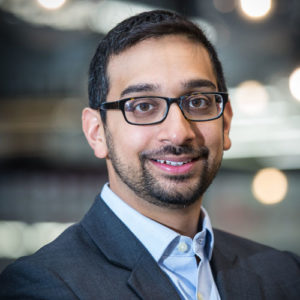
Sahil Mehta
Related articles.

Should I Go to a Caribbean Medical School?

Best Medical Schools in the Caribbean

Military Medicine: 3 Ways To Serve, Plus Scholarship Options

Weekly Weigh-in: The University Secondary Essay

- Live Online
- Self-Paced Course
- Free Resources
- 1-888-427-7737
3 Steps to Writing a Strong Medical School Personal Statement
- Feb 26, 2019
- Reviewed By: Liz Flagge

As any admissions officer will tell you, there is no single determining factor in medical school admissions. A perfect MCAT score won’t guarantee you’ll get accepted, though that doesn’t mean you still shouldn’t try your best to get the highest MCAT score you can.
The beauty of holistic review is that all parts of your application are important, including your med school personal statement. In fact, many students fail to get accepted because, despite their otherwise flawless application and intriguing story, they couldn’t write a compelling personal essay. It’s not an easy task, and students often ask for help writing a personal statement.
We’ve broken down the writing process into three steps to make it less overwhelming.
Step One to Writing a Med School Personal Statement: Prepping
Understand the requirements.
The AMCAS ( American Medical College Application Service ), TMDSAS ( Texas Medical and Dental Schools Application Service ), and AACOMAS ( American Association of Colleges of Osteopathic Medicine ) all have open-ended prompts that ask you to explain your interest and motivation for pursuing medicine. The section should be used as an opportunity to distinguish yourself from other applicants.
Free-Write to Jot Down Your Thoughts
Although you’re not answering a specific question, there are certain things you want to get across in your essay: the reason(s) you decided to pursue medicine, your motivations, and any hardships or unique situations you’ve faced. Take 30 minutes to simply write everything that would even remotely address these questions. Don’t think; just write. There are no right or wrong answers in this stage. Your thoughts don’t necessarily need to connect to each other, but they should relate back to the prompt. Freewriting allows you to start putting ideas to paper without the pressure of writing a perfect first draft. Then choose the best topic out of the bunch to flesh out, or select a network of related ideas.
Focus and Reflect
Look at the experiences and activities you chose to focus on. What did you learn from those experiences? What point do you want to leave your reader with? Why do you REALLY want to become a doctor and how do your experiences and writing convey that? Adcoms don’t just want a list that regurgitates your resume/accomplishments/awards; they want to know you’ve thought hard about your decision to become a doctor.
Analyze Other Personal Statements
Chances are you haven’t written a personal statement since you applied to undergrad. Analyzing other personal statements can be very beneficial to not only get your creativity flowing but also to understand what framework works better. A successful personal statement will demonstrate what admission committees look for. On the other hand, a personal statement from a student that didn’t get into his top schools can show you what not to do. You can apply the same critical eye to your own drafts afterward. Dr. Ryan Gray has compiled 30 personal statements with feedback for you to analyze and draw inspiration from.
Step Two to Writing a Med School Personal Statements: Writing Your First Draft
Set the stage in the introduction.
Once you have picked your topic, it’s time to start writing. Your goal in the introduction is to engage the reader. Without giving too much away, make sure you’re conveying the qualities you chose to write about and leave them wanting more.
Don’t Tailor It to One Specific School
The AMCAS and TMDSAS applications are universal, which is why you shouldn’t tailor the essays to a specific school, especially if you’re applying to multiple schools. Save the personal touch for each school’s secondary application.
Find a Unique Angle
Unfortunately, it’s very likely many med school applicants will talk about the same topic. Almost all applicants will have volunteered at a hospital or clinic, so your task is to showcase what made your experience unique. It might be a specific patient or doctor you worked with, a disaster that changed the way you looked at medicine, or how you managed to flourish despite when you fainted the first time you drew someone’s blood.
Write a Story, Not Just An Essay
Essays, at least in the collegiate sense, can be boring. The normal structure of Intro-Thesis- Supporting Paragraphs-Conclusion may not work in the medical school admissions process. Think about it: admissions officers likely read hundreds of applications every day. Their eyes might just gloss over a thesis sentence that reads, “In this essay, I will explain why I want to become a doctor.” Give them a break from the cookie-cutter essays. This is your moment to prove you’re something more than just MCAT scores and GPA. Write your story, the one that got you to point where you are and that will continue in medical school. Be descriptive and utilize your personal flair, but don’t be informal. This is still a professional setting. There’s also need to exaggerate; the committee wants to hear about YOU! Your reasons for becoming a doctor as legitimate as the next person’s.
Stay Within the Character Limit and Format
This speaks for itself, but it’s very important to not go over the allotted character limit (5300 on the AMCAS and 5000 for the TMDSAS, including spaces). The AMCAS platform also doesn’t read formatting, so it’s best to write your essay in a word document first, then paste it in a text application before submitting.
Wrap It up in Your Conclusion
Use your conclusion to bring everything full circle and reemphasize your passions and commitment to medicine.
Step Three to Writing a Med School Personal Statement: Editing and Rewriting
Go through multiple rounds of editing.
You will rewrite your personal statement more than once. Each draft can go through different phases of editing. Go through your first draft and pay attention to the content and what you can say to make it better. Then set it aside. When you’re ready to pick it up again, check for other issues, such as spelling/grammar, clarity, structure, content, flow/transitions, thematics, and tone. Rewrite your statement at least twice.
Get an Outside Opinion
Often when we create something, we are too close to the project to be completely objective. It’s always best to have other people edit a draft. However, your neighbor or best friend may not be the best choices to look over your essay. Find people who have strong backgrounds in writing or even medicine who can make your statement stronger.
Condense If Necessary (and It Probably Will Be)
You’re already aware of the character limits for the essays. Hopefully, your first draft stayed within those parameters, but if it didn’t, now is the time to decide what information is necessary and what can be cut. It’s always a good idea to use all the space provided if you need to, but less is often more. A shorter, but strong, personal statement is more effective than one that drones on and on without hitting its mark.
The personal statement is where your personality and story can really shine. Show the admissions committee what makes you unique and a strong doctor-in-the making. Schedule a free consultation with our Senior Advisors to learn how to take your application from good to great!
Related Posts

Essential MCAT Equations To Memorize

Medical Schools Offering Full-Tuition Scholarships

How To Maximize the Last Semester of Your Premed Senior Year
Search the blog, free consultation.
Interested in our Online MCAT Course , One-on-One MCAT Tutoring or Med admissions packages? Set up a free consultation with one of our experienced Senior Student Advisors.
Popular Posts

Free MCAT Practice Account
Get the most representative MCAT practice possible when you sign up for our free MCAT Account, which includes a half-length diagnostic exam and one of our full-length MCAT practice exams.
Sign-up for our newsletter!
Username or email *
Password *
Forgotten password?
[email protected]
+44 (0)20 8834 4579
Medicine Personal Statement
Get advice on your Medicine Personal Statement, including what to include, how to structure it, and how you can get help with this vital part of your application.
- Learn what a Medicine Personal Statement is
- Understand how long it needs to be
- Find out what it should include
- Discover how to structure your Personal Statement
- Explore how to get help with it
Jump to Section
- Deciding on Medicine
- Work Experience
- Choosing a Medical School
Medicine Personal Statement Examples
- How Medical Schools Use Your Personal Statement
- How to Structure a Personal Statement
- How to Write a Personal Statement
- Personal Statement Review Service
- Interview Guide
- Interview Questions
- NHS Hot Topics
- Medical Ethics
- Graduate Entry
- Studying Abroad
- Study Medicine Abroad In Europe
- Studying Abroad in the USA
- Study Abroad in Ireland
- Study Medicine In The Caribbean
- Study Abroad in Australia
- Study Abroad in Hong Kong
- How To Survive Your First Year Of Med School
- Science Hot Topics
- Veterinary Medicine
- Allied Health
- Physician Associate
- The NHS Guide
- Parents’ Guide
Your Personal Statement for Medicine is your chance to tell Medical Schools why you want to study Medicine and become a Doctor. With a successful Medicine Personal Statement, you’ll really stand out from the pool of other applicants.
What is a Medicine Personal Statement?
Your Personal Statement supports your UCAS Application. It’s designed to help Medical Schools choose the best candidates.
It gives you the chance to tell Admissions Tutors about the skills or qualities you have that are relevant to studying Medicine and being a Doctor – and write about your motivation to study Medicine .
Have a look at our Medicine Personal Statement examples from current Medical School students to get an understanding of the content and structure.
How Important Is It?
Medical Schools use Personal Statements in different ways.
You’ll find that some Medical Schools won’t pay much attention to it, while some will use it to shortlist candidates for interview . Some will also use it to form the basis of interview questions , so make sure your PS is interview-proof and doesn’t include anything you can’t justify or elaborate on.
If a Medical School is struggling to decide between two candidates, they may use the Personal Statement as a deciding factor.
You can learn more in our guide to how Medical Schools use your Personal Statement .
Make Sure You Stand Out
Get The Best Personal Statement Advice
How Long Should My Personal Statement Be?
Your Medicine Personal Statement needs to be 4,000 characters – which is around 500 words – over 47 lines.
What Should My Personal Statement Include?
Medicine Personal Statements should cover the following elements, so that Medical Schools can get to know you.
- Motivation — Why do you want to study Medicine and become a Doctor?
- Exploration — What have you done to learn about Medicine? For example: work experience , volunteering , wider reading or research
- Suitability — Why are you a good fit for Medicine?
Reflection should be a big part of your PS. When you’re writing it, don’t just list your work experience placements, academic achievements and extracurricular activities — reflect on key learning points and link everything back to qualities that are important for Medicine.
For more specific advice about what to include when you’re applying for Graduate Entry Medicine, check out this blog .
What Should My Personal Statement NOT Include?
When you’re writing your Personal Statement, try to keep it concise and avoid unnecessary information. After all, you only have a limited number of words!
Some common PS mistakes include:
- Giving a generic or clich éd reason for wanting to become a Doctor
- Writing about what you did for work experience, without offering any reflections on what you actually learned from the experience
- Claiming that you have a certain quality (e.g. empathy ) without backing it up
- Listing all of the extracurricular activities you do, without mentioning the skills they helped you to develop which are relevant to Medicine
Of course, it’s also important to check your PS for spelling mistakes and grammatical errors. Get it checked by someone else for a second opinion too.
When Should I Start Writing My Personal Statement?
Personal Statements need to be submitted before the UCAS deadline, which is typically a date in October for Medicine.
Don’t leave it until the last minute! It’s a good idea to start working on it during the summer break – perhaps after you’ve got your UCAT out of the way. If you leave it all until September or October, remember that you’ll be writing it alongside A-Level work and BMAT revision if you’re planning to sit the BMAT.
Start by reading some Medicine Personal Statement examples for inspiration. Then note down everything you can think of to cover your Motivation, Exploration and Suitability for Medicine. Perhaps check this content plan with someone like a parent to see if you’ve missed out anything important. After you have a clear plan, you can start writing your first draft.
How Should I Structure My Personal Statement?
The structure of your Personal Statement is a matter of personal preference, but we advise you to follow a format that covers the following points:
- Why you want to study Medicine and become a Doctor (Motivation)
- Work experience and/or volunteering – and what you learned from it (Exploration)
- Wider reading and study beyond your school curriculum (Exploration)
- Skills from extracurricular activities which are relevant to a Doctor’s skill set, e.g. leadership skills, communication skills, teamwork, etc (Suitability)
- Conclusion (Motivation)
The Ultimate UCAS Support
Make Your Application Amazing
What Is Changing In The Future?
UCAS has announced that Personal Statements will be changing in the future. To make the writing process more structured, there are plans to provide applicants with a series of questions to answer.
These questions have not been confirmed yet, but UCAS says they are likely to cover areas such as:
- Motivation for the course
- Preparation for the course through learning and through other experiences
- Preparedness for student life
- Preferred learning styles
- Extenuating circumstances
According to UCAS, the changes will be introduced no earlier than 2024, for candidates applying for 2025 entry. Find out more here.
How Can I Get Help?
Getting feedback on your Personal Statement for Medical School is incredibly important.
You could ask a relative to read it, give you feedback on how it reads, and let you know if you’ve forgotten any big accomplishments that they can remember. Another option is to ask a friend or a teacher to have a read and tell you if it makes sense and gives a good impression.
You might also like to get professional help with your medical Personal Statement, since it’s such an important piece of writing.
Of course it’s important that you write it yourself, but getting advice and getting it reviewed can be incredibly beneficial. Some of the best options include:
- Get a Personal Statement Review by an Admissions Tutor
- Join a Personal Statement Workshop to get help crafting an excellent statement
- Focus on one-to-one help with Personal Statement Tutoring for your Medical School application
UCAS Preparation
UCAS Application Packages
Boost your Medicine application with specialist support for navigating UCAS - and save 15% when you book a package!
Personal Statement Review
Get your Personal Statement reviewed by a Medical School Admissions Tutor or high-flying medic. You'll receive detailed feedback in just a few days - with clear action points on how to improve.
Personal Statement Tutoring
Impress Admissions Tutors at top Medical Schools, avoid common mistakes and make your Personal Statement shine with tutoring.
Join Our Newsletter
Join our mailing list for weekly updates and tips on how to get into Medicine.
UCAS Medicine
Loading More Content

Top-funded digital health companies offering lifestyle interventions for dementia prevention: Company overview and evidence analysis
- Find this author on Google Scholar
- Find this author on PubMed
- Search for this author on this site
- ORCID record for Rasita Vinay
- For correspondence: [email protected]
- ORCID record for Tobias Kowatsch
- ORCID record for Marcia Nissen
- Info/History
- Supplementary material
- Preview PDF
Background and objective: Dementia prevention has been recognized as a top priority by public health authorities due to the lack of disease modifying treatments. In this regard, digital dementia-preventive lifestyle services (DDLS) emerge as potentially pivotal services, aiming to address modifiable risk factors on a large scale. This study aims to identify the top-funded companies offering DDLS globally and evaluate their clinical evidence to gain insights into the current state of the global service landscape. Methods: A systematic screening of two financial databases (Pitchbook and Crunchbase) was conducted. Corresponding published clinical evidence was collected through a systematic literature review and analyzed regarding study purpose, results, quality of results, and level of clinical evidence. Findings: The ten top-funded companies offering DDLS received a total funding of EUR 128.52 million, of which three companies collected more than 75%. Clinical evidence was limited due to only nine eligible publications, small clinical subject groups, the absence of longitudinal study designs, and no direct evidence of dementia prevention. Conclusion: The study highlights the need for a more rigorous evaluation of DDLS effectiveness in today's market. It serves as a starting point for further research in digital dementia prevention.
Competing Interest Statement
RV, PH, TK, and MN are affiliated with the Centre for Digital Health Interventions (CDHI), a joint initiative of the Institute for Implementation Science in Health Care, University of Zurich, the Department of Management, Technology, and Economics at the ETH Zurich, and the institute of Technology Management and School of Medicine at the University of St. Gallen. CDHI is funded in part by CSS, a Swiss health insurer, Mavie Next, an Austrian healthcare provider and MTIP, a Swiss investor company. TK is also a co-founder of Pathmate Technologies, a university spin-off company that creates and delivers digital clinical pathways. However, neither CSS nor Pathmate Technologies, Mavie Next, or MTIP was involved in this research. All other authors declare no conflict of interest.
Funding Statement
This study did not receive any funding
Author Declarations
I confirm all relevant ethical guidelines have been followed, and any necessary IRB and/or ethics committee approvals have been obtained.
I confirm that all necessary patient/participant consent has been obtained and the appropriate institutional forms have been archived, and that any patient/participant/sample identifiers included were not known to anyone (e.g., hospital staff, patients or participants themselves) outside the research group so cannot be used to identify individuals.
I understand that all clinical trials and any other prospective interventional studies must be registered with an ICMJE-approved registry, such as ClinicalTrials.gov. I confirm that any such study reported in the manuscript has been registered and the trial registration ID is provided (note: if posting a prospective study registered retrospectively, please provide a statement in the trial ID field explaining why the study was not registered in advance).
I have followed all appropriate research reporting guidelines, such as any relevant EQUATOR Network research reporting checklist(s) and other pertinent material, if applicable.
Data Availability
All data produced in the present work are contained in the manuscript
View the discussion thread.
Supplementary Material
Thank you for your interest in spreading the word about medRxiv.
NOTE: Your email address is requested solely to identify you as the sender of this article.

Citation Manager Formats
- EndNote (tagged)
- EndNote 8 (xml)
- RefWorks Tagged
- Ref Manager
- Tweet Widget
- Facebook Like
- Google Plus One
Subject Area
- Public and Global Health
- Addiction Medicine (315)
- Allergy and Immunology (617)
- Anesthesia (159)
- Cardiovascular Medicine (2269)
- Dentistry and Oral Medicine (279)
- Dermatology (201)
- Emergency Medicine (369)
- Endocrinology (including Diabetes Mellitus and Metabolic Disease) (798)
- Epidemiology (11559)
- Forensic Medicine (10)
- Gastroenterology (676)
- Genetic and Genomic Medicine (3560)
- Geriatric Medicine (336)
- Health Economics (615)
- Health Informatics (2297)
- Health Policy (912)
- Health Systems and Quality Improvement (860)
- Hematology (334)
- HIV/AIDS (748)
- Infectious Diseases (except HIV/AIDS) (13133)
- Intensive Care and Critical Care Medicine (755)
- Medical Education (358)
- Medical Ethics (100)
- Nephrology (388)
- Neurology (3341)
- Nursing (191)
- Nutrition (506)
- Obstetrics and Gynecology (650)
- Occupational and Environmental Health (643)
- Oncology (1753)
- Ophthalmology (524)
- Orthopedics (208)
- Otolaryngology (284)
- Pain Medicine (223)
- Palliative Medicine (66)
- Pathology (437)
- Pediatrics (999)
- Pharmacology and Therapeutics (419)
- Primary Care Research (402)
- Psychiatry and Clinical Psychology (3050)
- Public and Global Health (5980)
- Radiology and Imaging (1217)
- Rehabilitation Medicine and Physical Therapy (712)
- Respiratory Medicine (809)
- Rheumatology (367)
- Sexual and Reproductive Health (348)
- Sports Medicine (315)
- Surgery (386)
- Toxicology (50)
- Transplantation (170)
- Urology (142)

COMMENTS
We Offer Custom Plans Designed To Fit Your Preferences, Learning Style & Goals. Get Info! 1-On-1 Attention From The Country's Best Advisors & Tutors. Contact Us Today!
Find an Expert Personal Statement Tutor Who Suits Your Budget and Learning Style. Learn from the Nation's Largest Community of Statement Tutors. Contact a Tutor!
Personal Statement Editing. $650. -. Sign Up. Personalized Attention with a Physician Advisor to Develop Your Concepts & Finalize Your Submission. Up to 3 Rounds of Grammar, Style and Content Editing with a Professional Writer. Video & Resources to Guide the Development of Your Essay. 30 minutes Brainstorming Time. Maximum Word Count (750)
Medical school personal statement tutoring can be a good way to ensure you write something complete, engaging, and interesting to the application review committee. Contact Varsity Tutors so we can connect you with an experienced medical school personal statement tutor. The personal statement is part of a comprehensive application portfolio.
25 medical school personal statement examples, plus a step-by-step guide to writing a unique essay Shemmassian Academic Consulting. About Medical School Admissions College Admissions; ... volunteering as an English tutor for underserved youth in Chicago for six years, volunteering with a medical mission trip to Haiti for two summers, and ...
Our Personal Statement Coaching Services provide wonderful benefits for any aspiring medical student: Access to experienced British doctors, medical education specialists, and tutors who have coached and interviewed thousands of applicants. 24/7 access to your Tutor Doctor, through a dedicated WhatsApp group.
You can book from 1 to 15 hours of Medicine Personal Statement tuition. After booking, a Tutoring Coordinator will be in touch. Sessions will be organised to suit you. If you book 15 hours, for example, these can be delivered in 2-hour increments. Our Medicine Personal Statement Tutors will deliver sessions online, anywhere in the world.
How it Works. Step 1. Purchase the best personal statement editing option below for your needs. After signing up, you'll receive instructions in your inbox on how to submit your personal statement. Step 2. We will pair you with a doctor advisor with experience on medical school or residency admissions committees.
Bring your own voice and perspective to your personal statement to give it a truly memorable flavor. 5. Be interesting. Start with a "catch" that will create intrigue before launching into the story of who you are. Make the admissions committee want to read on! Book an Admissions Consultant. For Free. 6. Show don't tell.
Medical School Personal Statement Fundamentals. If you are getting ready to write your medical school personal statement for the 2024-2025 application year, you may already know that almost 60% of medical school applicants are not accepted every year. You have most likely also completed all of your medical school requirements and have scoured the internet for worthy medical school personal ...
Medical School Personal Statement Editing Our experts will review and edit your personal statement to help you highlight your story and credentials, and show you in the most positive light as an applicant, even if you do not have the highest MCAT scores.
2024 How to Write a Medical School Personal Statement (11 Steps) Each piece of a med school application brings a unique set of anxiety-ridden challenges, but few equal that of the personal statement. A personal statement is much, much more than a narrative-version of your CV. Reiterating your grades and extracurriculars in complete sentences is ...
The medical personal statement should be a persuasive document that convinces medical schools that you are worthy of spot at their institutions, which means it should include facts about what makes you special - your achievements. Just like a lawyer does when s/he is trying a case in front of a judge, you must persuade with evidence.
Understanding how to structure your Personal Statement for Medicine will firstly help you to plan your writing. Note down the three key categories of Motivation, Exploration and Suitability - then write bullet points with everything you want to include for each one. Once you have a plan, you're ready to start writing your first draft.
Here are some tips that can help your personal statement shine: 1. Don't be afraid to get personal. If I had a nickel for every time I have read a personal statement that started with "I want to be a doctor because I want to help people" I would, well, have a considerable number of nickels. Everybody applying to medical school wants to ...
The best way to demonstrate suitability in your Personal Statement for Medicine is to 'show rather than tell.'. For example, saying "I'm a very empathetic person" is easy to do. And anyone can write that on a piece of paper. It's better if you can demonstrate it with examples from your work experience or other situations.
28 More Medical School Personal Statement Examples That Got Accepted. Medical School Personal Statement Example #3. Imagine holding a baby wearing doll clothes and a diaper made of gauze because she was too small. When I was 4 years old, my sister was born 4 months prematurely, weighing only 1 pound and 7 ounces.
When brainstorming your personal statement for medical school, consider these topics: Significant or formative life experiences: ... Returning to the list of extracurriculars above, she could choose to write about working as a math tutor (3) or being a trombonist in the school band and trombone instructor (4). By choosing the latter and zooming ...
Write your story, the one that got you to point where you are and that will continue in medical school. Be descriptive and utilize your personal flair, but don't be informal. This is still a professional setting. There's also need to exaggerate; the committee wants to hear about YOU!
Personal Statements, Work & Activities and Secondary Applications for Medical School/Health Professions Programs Kristin McJunkins Director, Advanced Degree Application & STEM Career Advising. Spring 2024. Yale Office of Career Strategy. What we'll cover today • Personal Statement: the basics
Your Personal Statement supports your UCAS Application. It's designed to help Medical Schools choose the best candidates. It gives you the chance to tell Admissions Tutors about the skills or qualities you have that are relevant to studying Medicine and being a Doctor - and write about your motivation to study Medicine.
Competing Interest Statement. RV, PH, TK, and MN are affiliated with the Centre for Digital Health Interventions (CDHI), a joint initiative of the Institute for Implementation Science in Health Care, University of Zurich, the Department of Management, Technology, and Economics at the ETH Zurich, and the institute of Technology Management and School of Medicine at the University of St. Gallen.